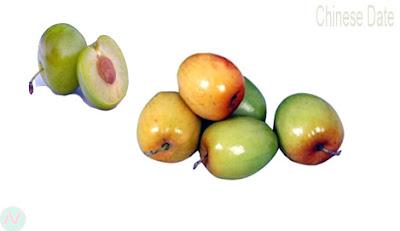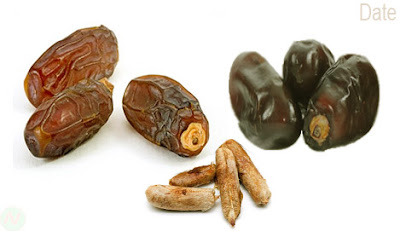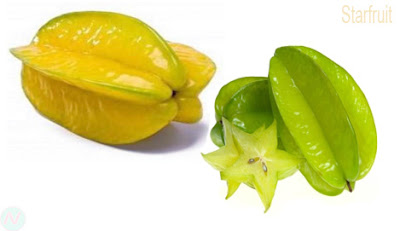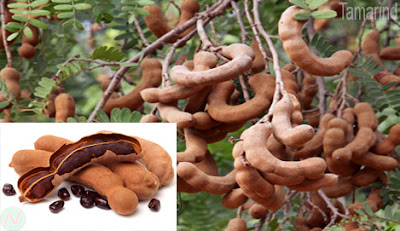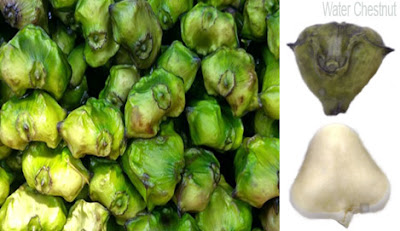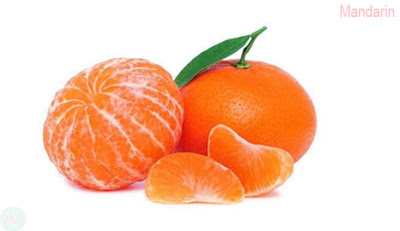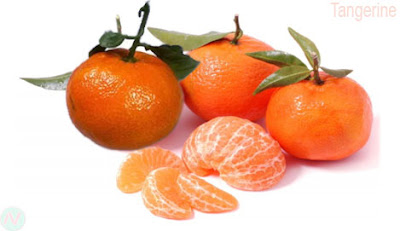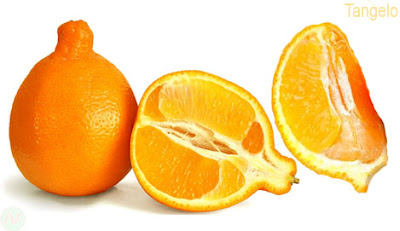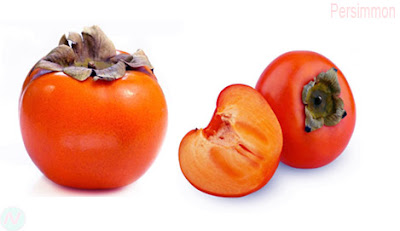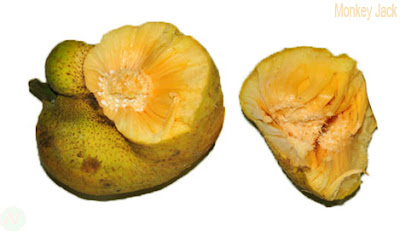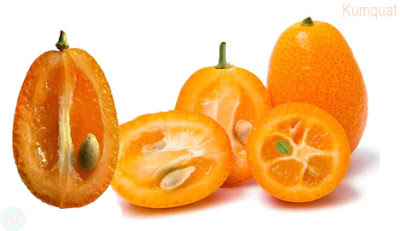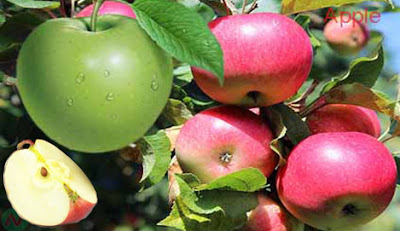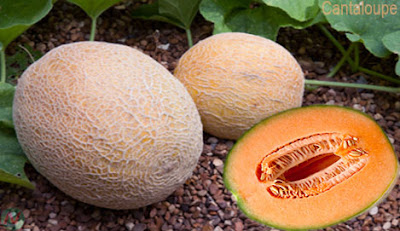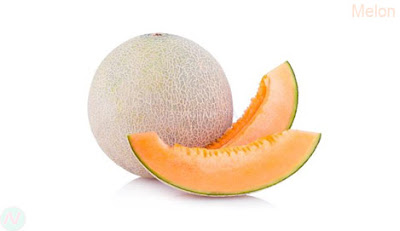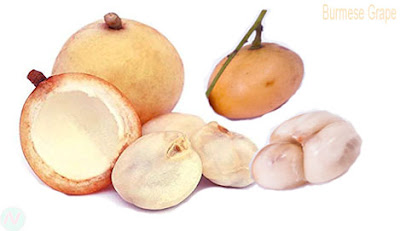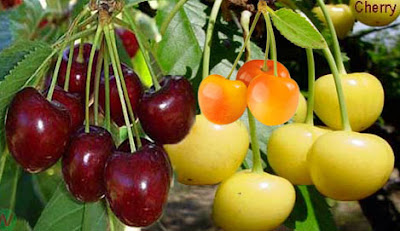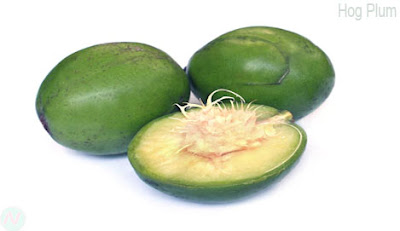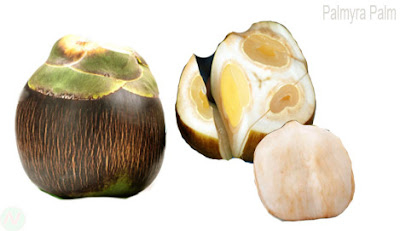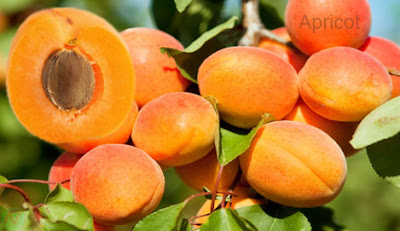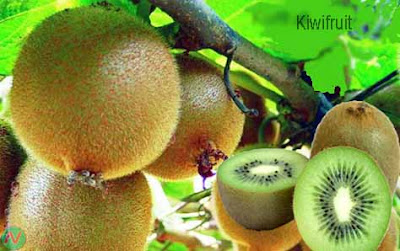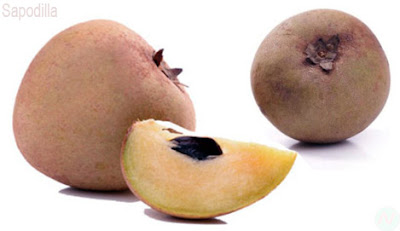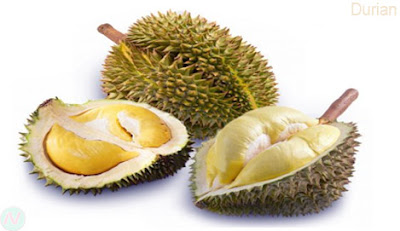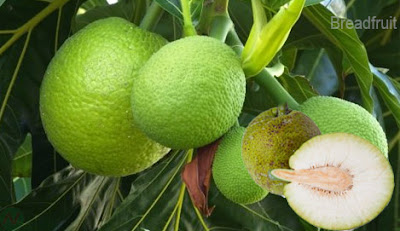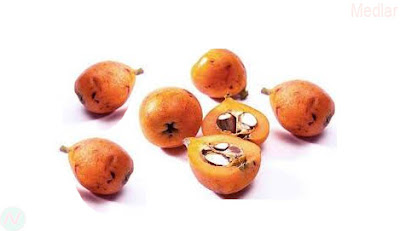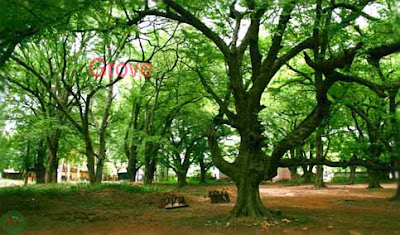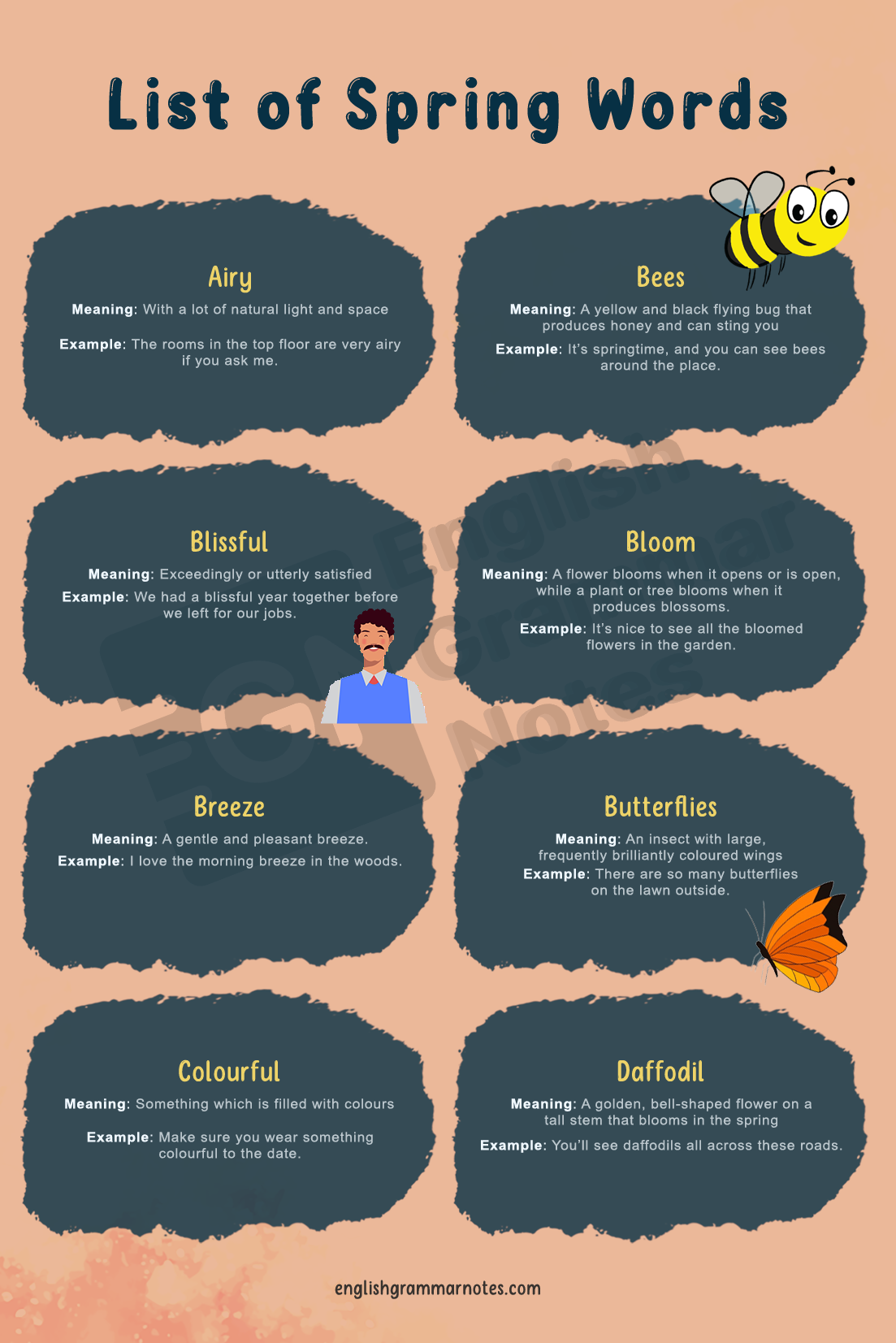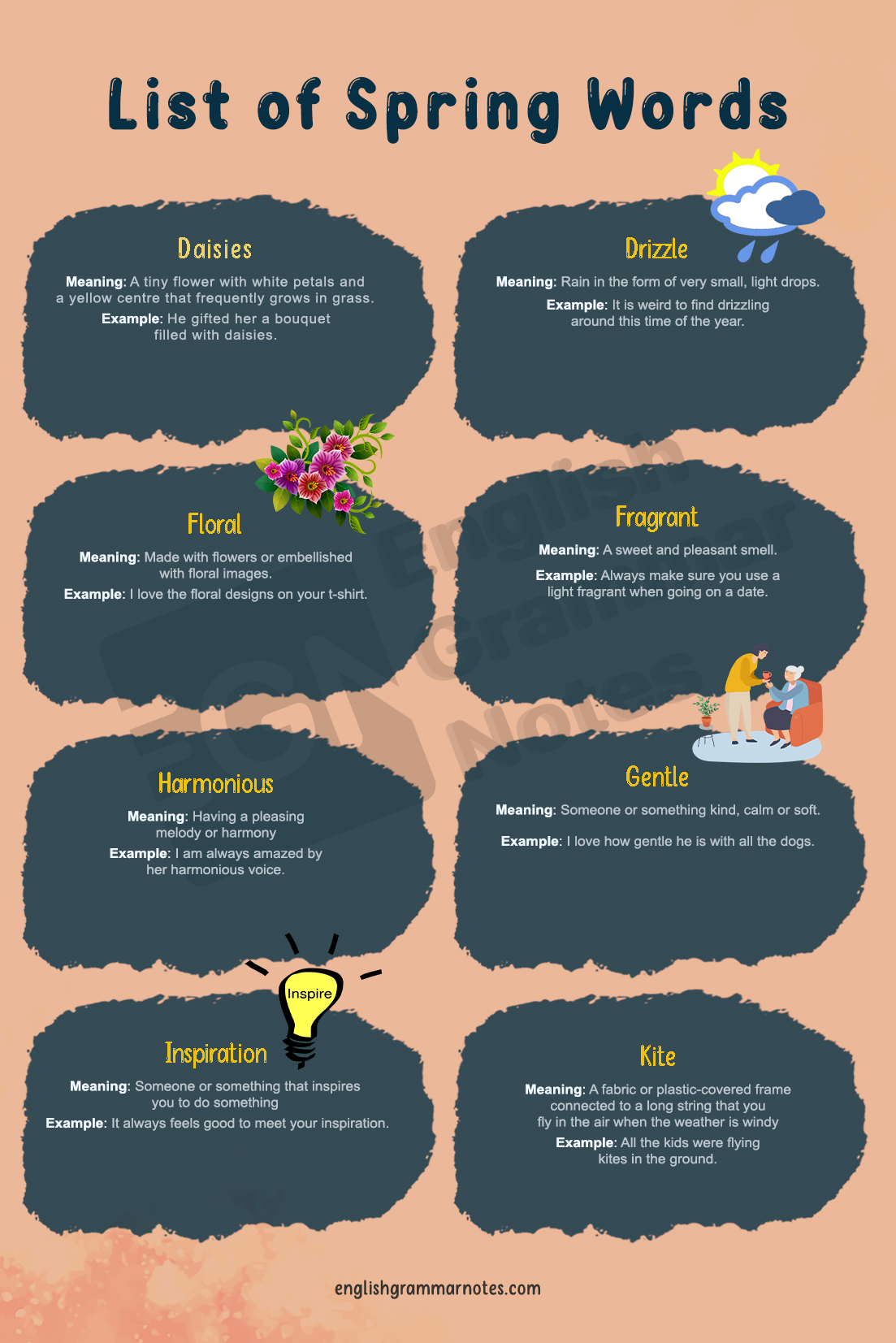Word Meaning Lecture # 6 Grigoryeva M.
Word Meaning Approaches to word meaning Meaning and Notion (понятие) Types of word meaning Types of morpheme meaning Motivation
Each word has two aspects: the outer aspect ( its sound form) cat the inner aspect (its meaning) long-legged, fury animal with sharp teeth and claws
Sound and meaning do not always constitute a constant unit even in the same language EX a temple a part of a human head a large church
Semantics (Semasiology) Is a branch of lexicology which studies the meaning of words and word equivalents
Approaches to Word Meaning The Referential (analytical) approach The Functional (contextual) approach Operational (information-oriented) approach
The Referential (analytical) approach formulates the essence of meaning by establishing the interdependence between words and things or concepts they denote distinguishes between three components closely connected with meaning: the sound-form of the linguistic sign, the concept the actual referent
Basic Triangle concept – flower concept (thought, reference) – the thought of the object that singles out its essential features referent – object denoted by the word, part of reality sound-form (symbol, sign) – linguistic sign sound-form [rәuz] referent
In what way does meaning correlate with each element of the triangle ? • In what relation does meaning stand to each of them? •
Meaning and Sound-form are not identical different EX. dove — [dΛv] English [golub’] Russian [taube] German sound-forms BUT the same meaning
Meaning and Sound-form nearly identical sound-forms have different meanings in different languages EX. [kot] Russian – a male cat [kot] English – a small bed for a child identical sound-forms have different meanings (‘homonyms) EX. knight [nait]
Meaning and Sound-form even considerable changes in sound-form do not affect the meaning EX Old English lufian [luvian] – love [l Λ v]
Meaning and Concept concept is a category of human cognition concept is abstract and reflects the most common and typical features of different objects and phenomena in the world meanings of words are different in different languages
Meaning and Concept identical concepts may have different semantic structures in different languages EX. concept “a building for human habitation” – English Russian HOUSE ДОМ + in Russian ДОМ “fixed residence of family or household” In English HOME
Meaning and Referent one and the same object (referent) may be denoted by more than one word of a different meaning cat pussy animal tiger
Meaning is not identical with any of the three points of the triangle – the sound form, the concept the referent BUT is closely connected with them.
Functional Approach studies the functions of a word in speech meaning of a word is studied through relations of it with other linguistic units EX. to move (we move, move a chair) movement (movement of smth, slow movement) The distriution ( the position of the word in relation to others) of the verb to move and a noun movement is different as they belong to different classes of words and their meanings are different
Operational approach is centered on defining meaning through its role in the process of communication EX John came at 6 Beside the direct meaning the sentence may imply that: He was late He failed to keep his promise He was punctual as usual He came but he didn’t want to The implication depends on the concrete situation
Lexical Meaning and Notion denotes the Lexical meaning is reflection in the realization of a mind of real objects notion by means of a definite language system Notion is a unit of Word is a language thinking unit
Lexical Meaning and Notions are Meanings are internationally limited especially with the nations of the same EX GO (E) —- ИДТИ(R) cultural level “To move” BUT !!! To GO by bus (E) ЕХАТЬ (R) EX Man -мужчина, человек Она – хороший человек (R) She is a good person (E)
Types of Meaning Types grammatical meaning of meaning lexico-grammatical meaning lexical meaning denotational connotational
Grammatical Meaning component of meaning recurrent in identical sets of individual forms of different words EX. girls, winters, toys, tables – grammatical meaning of plurality asked, thought, walked – meaning of past tense
Lexico-grammatical meaning (part –of- speech meaning) is revealed in the classification of lexical items into: major word classes (N, V, Adj, Adv) minor ones (artc, prep, conj) words of one lexico-grammatical class have the same paradigm
Lexical Meaning is the meaning proper to the given linguistic unit in all its forms and distributions EX. Go – goes — went lexical meaning – process of movement
PRACTICE Group the words into 3 column according to the grammatical, lexical or part-of –speech meaning • • Boy’s, nearest, at, beautiful, think, man, drift, wrote, tremendous, ship’s, the most beautiful, table, near, for, went, friend’s, handsome, thinking, boy, nearer, thought, boys, lamp, go, during.
• Grammatical 1. The case of nouns: boy’s, ship’s, friend’s 2. The degree of comparison of adj: nearest, the most beautiful 3. The tense of verbs: wrote, went, thought • Lexical 1. Think, thinking, thought 2. Went, go 3. Boy’s, boys 4. Nearest, nearer 5. At, for, during (“time”) 6. Beautiful, the most beautiful • Part-of-speech Nouns—verbs—adj—-prep
Aspects of Lexical meaning The denotational aspect The connotational aspect The pragmatic aspect
Denotational Meaning “denote” – to be a sign of, stand as a symbol for” establishes the correlation between the name and the object makes communication possible EX booklet “a small thin book that gives info about smth”
PRACTICE Explain denotational meaning • • A lion-hunter To have a heart like a lion To feel like a lion To roar like a lion To be thrown to the lions The lion’s share To put your head in lion’s mouth
PRACTICE • A lion-hunter A host that seeks out celebrities to impress guests • To have a heart like a lion To have great courage • To feel like a lion To be in the best of health • To roar like a lion To shout very loudly • To be thrown to the lions To be criticized strongly or treated badly • The lion’s share Much more than one’s share • To put your head in lion’s mouth
Connotational Meaning reflects the attitude of the speaker towards what he speaks about it is optional – a word either has it or not Connotation gives additional information and includes: The emotive charge EX Daddy (for father) Intensity EX to adore (for to love) Imagery EX to wade through a book “ to walk with an effort”
PRACTICE Give possible interpretation of the sentences • She failed to buy it and felt a strange pang. • Don’t be afraid of that woman! It’s just barking! • He got up from his chair moving slowly, like an old man. • The girl went to her father and pulled his sleeve. • He was longing to begin to be generous. • She was a woman with shiny red hands and workswollen finger knuckles.
PRACTICE Give possible interpretation of the sentences • She failed to buy it and felt a strange pang. (pain—dissatisfaction that makes her suffer) • Don’t be afraid of that woman! It’s just barking! (make loud sharp sound—-the behavior that implies that the person is frightened) • He got up from his chair moving slowly, like an old man. (to go at slow speed—was suffering or was ill) • The girl went to her father and pulled his sleeve. (to move smth towards oneself— to try to attract smb’s attention) • He was longing to begin to be generous. (to start doing— hadn’t been generous before) • She was a woman with shiny red hands and work-swollen finger knuckles. (colour— a labourer involved into physical work , constant contact with water)
The pragmatic aspect of lexical meaning the situation in which the word is uttered, the social circumstances (formal, informal, etc. ), social relationships between the interlocutors (polite, rough, etc. ), the type and purpose of communication (poetic, official, etc. ) EX horse (neutral) steed (poetic) nag (slang) gee-gee (baby language)
PRACTICE State what image underline the meaning • I heard what she said but it didn’t sink into my mind. • You should be ashamed of yourself, crawling to the director like that. • They seized on the idea. • Bill, chasing some skirt again? • I saw him dive into a small pub. • Why are you trying to pin the blame on me? • He only married her for her dough.
PRACTICE State what image underline the meaning • I heard what she said but it didn’t sink into my mind. • (to understand completely) • You should be ashamed of yourself, crawling to the director like that. (to behave humbly in order to win favour) • They seized on the idea. (to be eager to take and use) • Bill, chasing some skirt again? (a girl) • I saw him dive into a small pub. (to enter suddenly) • Why are you trying to pin the blame on me? (to blame smb unfairly) • He only married her for her dough. (money)
Types of Morpheme Meaning lexical differential functional distributional
Lexical Meaning in Morphemes root-morphemes that are homonymous to words possess lexical meaning EX. boy – boyhood – boyish affixes have lexical meaning of a more generalized character EX. –er “agent, doer of an action”
Lexical Meaning in Morphemes has denotational and connotational components EX. –ly, -like, -ish – denotational meaning of similiarity womanly , womanish connotational component – -ly (positive evaluation), -ish (deragotary) женственный женоподобный
Differential Meaning a semantic component that serves to distinguish one word from all others containing identical morphemes EX. cranberry, blackberry, gooseberry
Functional Meaning found only in derivational affixes a semantic component which serves to refer the word to the certain part of speech EX. just, adj. – justice, n.
Distributional Meaning the meaning of the order and the arrangement of morphemes making up the word found in words containing more than one morpheme different arrangement of the same morphemes would make the word meaningless EX. sing- + -er =singer, -er + sing- = ?
Motivation denotes the relationship between the phonetic or morphemic composition and structural pattern of the word on the one hand, and its meaning on the other can be phonetical morphological semantic
Phonetical Motivation when there is a certain similarity between the sounds that make up the word and those produced by animals, objects, etc. EX. sizzle, boom, splash, cuckoo
Morphological Motivation when there is a direct connection between the structure of a word and its meaning EX. finger-ring – ring-finger, A direct connection between the lexical meaning of the component morphemes EX think –rethink “thinking again”
Semantic Motivation based on co-existence of direct and figurative meanings of the same word EX a watchdog – ”a dog kept for watching property” a watchdog – “a watchful human guardian” (semantic motivation)
• PRACTICE
Analyze the meaning of the words. Define the type of motivation a) morphologically motivated b) semantically motivated • Driver • Leg • Horse • Wall • Hand-made • Careless • piggish
Analyze the meaning of the words. Define the type of motivation a) morphologically motivated b) semantically motivated • Driver Someone who drives a vehicle morphologically motivated • Leg The part of a piece of furniture such as a table semantically motivated • Horse A piece of equipment shaped like a box, used in gymnastics semantically motivated
• Wall Emotions or behavior preventing people from feeling close semantically motivated • Hand-made Made by hand, not machine morphologically motivated • Careless Not taking enough care morphologically motivated • Piggish Selfish semantically motivated
what she said but it didn’t sink in my mind “do down to the bottom” ‘to be accepted by mind” semantic motivation I heard Why are you trying to pin the blame on me? “fasten smth somewhere using a pin” – ”to blame smb” semantic motivation I was following the man when he dived into a pub. “jump into deep water” – ”to enter into suddenly” semantic motivation You should be ashamed of yourself, crawling to the director like that “to move along on hands and knees close to the ground” – “to behave very humbly in order to win favor” semantic motivation
July 17th, 2012 | Inspiration |
Creative illustrations by New York based artist Ji Lee show the meaning of different words.
The goal was to create visual representation of a word, using only the letters that are contained within the word itself. [buy the book]
Also check out: Negative Space Art and Want vs Need
-
Jul 17th, 2012
-
Jose
awesome
Jul 17th, 2012
-
Nisa Zul
nice
Jul 18th, 2012
-
kadal
very nice
Jul 18th, 2012
-
Clint
Lol… Cool outlooks
Jul 18th, 2012
-
woops
Very creative! Delivers the message well!
Jul 18th, 2012
-
margaret
i remember years ago, being asked to do this in class and being utterly hopeless at it, as was everyone else. wish i had seen these beforehand – i would have known what the teacher wanted of me. brilliant
Jul 18th, 2012
-
soheyla
really good
Jul 18th, 2012
-
Dominic
Amazing!
Jul 18th, 2012
-
Matt
Brilliant! very creative
Jul 18th, 2012
-
red
I don’t get the fast food one! :S
Jul 18th, 2012
-
Mel
How creative!
Jul 18th, 2012
-
James
Wow! As someone working in graphics, this is really fun and creative! I kept getting impressed with each word I saw next. Cute and well done!
Jul 18th, 2012
-
guillermo
Good perspective..
Jul 18th, 2012
-
Damola
AWSOMEEEEEEEEEEEEE
Jul 18th, 2012
-
Jorge Cajina
Excelente, +10
Jul 18th, 2012
-
g9Ukt
@red it started with Thin font then the getting bolder and bolder as well as fast food fans…
Jul 18th, 2012
-
Mark
Cool man
Jul 18th, 2012
-
Gert
I like it.
Jul 18th, 2012
-
Crow
These are pretty cool. Laughed at the condom one, that probably says something about me.
Jul 18th, 2012
-
Betty
CLEVVVVER!!!!
Jul 18th, 2012
-
Jorge Uzcátegui
One of the most intelligent work i’ve seen. Not only the logotypes design but also the animation of them all.
HA:PPY to see it!
Jul 18th, 2012
-
lyn
hilarious, yet simply brilliant and creative!
Jul 18th, 2012
-
Snufkin
! l!ke !t i ^^
Jul 18th, 2012
-
Julia
Brilliant !!!
Jul 19th, 2012
-
Ben
Very creative
Nice !Jul 19th, 2012
-
Trevor
Thanks for posting these – very inspiring and creative. Particularly like ‘ill’, ‘elevator’ and ‘moon’ – but they are all great!
Jul 19th, 2012
-
Brianna
This is so cool. They’re like visual onomatopoeia’s.
Jul 19th, 2012
-
Paul Longva
;}
Jul 19th, 2012
-
mahfar
this is very very cool.
Jul 20th, 2012
-
Alex P
Honestly one of the best finds Toxel has had to show us. Thank you for the cleverness.
Jul 20th, 2012
-
red
@g9ukt thanks!
Jul 20th, 2012
-
E
This beats thesaurus in explaining the meaning of the words! Thumbs up!
Jul 20th, 2012
-
foad
really brilliant!
Jul 21st, 2012
-
krista
very very clever i liked the condom one
Jul 23rd, 2012
-
aida
love the ill, horizon, elevator, fast food, condom and tsunami.
Jul 23rd, 2012
-
Jordan
Exit was my favorite.
Jul 26th, 2012
-
NiceOne
@red: in “fast food”, the font becomes bolder, like the body becomes fat as long as you eat in fast foods!
Jul 26th, 2012
-
Ali Choobi
Fantastic…
Jul 30th, 2012
-
Anna
Awesome!
Oct 3rd, 2014
Скачать материал

Скачать материал


- Сейчас обучается 268 человек из 64 регионов






Описание презентации по отдельным слайдам:
-
1 слайд
Word Meaning
Lecture # 6
Grigoryeva M. -
2 слайд
Word Meaning
Approaches to word meaning
Meaning and Notion (понятие)
Types of word meaning
Types of morpheme meaning
Motivation
-
3 слайд
Each word has two aspects:
the outer aspect
( its sound form)
catthe inner aspect
(its meaning)
long-legged, fury animal with sharp teeth
and claws -
4 слайд
Sound and meaning do not always constitute a constant unit even in the same language
EX a temple
a part of a human head
a large church -
5 слайд
Semantics (Semasiology)
Is a branch of lexicology which studies the
meaning of words and word equivalents -
6 слайд
Approaches to Word Meaning
The Referential (analytical) approachThe Functional (contextual) approach
Operational (information-oriented) approach
-
7 слайд
The Referential (analytical) approach
formulates the essence of meaning by establishing the interdependence between words and things or concepts they denotedistinguishes between three components closely connected with meaning:
the sound-form of the linguistic sign,
the concept
the actual referent -
8 слайд
Basic Triangle
concept (thought, reference) – the thought of the object that singles out its essential features
referent – object denoted by the word, part of reality
sound-form (symbol, sign) – linguistic sign
concept – flowersound-form referent
[rәuz] -
9 слайд
In what way does meaning correlate with
each element of the triangle ?In what relation does meaning stand to
each of them? -
10 слайд
Meaning and Sound-form
are not identical
different
EX. dove — [dΛv] English sound-forms
[golub’] Russian BUT
[taube] German
the same meaning -
11 слайд
Meaning and Sound-form
nearly identical sound-forms have different meanings in different languages
EX. [kot] Russian – a male cat
[kot] English – a small bed for a childidentical sound-forms have different meanings (‘homonyms)
EX. knight [nait]
night [nait] -
12 слайд
Meaning and Sound-form
even considerable changes in sound-form do not affect the meaningEX Old English lufian [luvian] – love [l Λ v]
-
13 слайд
Meaning and Concept
concept is a category of human cognitionconcept is abstract and reflects the most common and typical features of different objects and phenomena in the world
meanings of words are different in different languages
-
14 слайд
Meaning and Concept
identical concepts may have different semantic structures in different languagesEX. concept “a building for human habitation” –
English Russian
HOUSE ДОМ+ in Russian ДОМ
“fixed residence of family or household”
In English HOME -
15 слайд
Meaning and Referent
one and the same object (referent) may be denoted by more than one word of a different meaning
cat
pussy
animal
tiger -
16 слайд
Meaning
is not identical with any of the three points of the triangle –
the sound form,
the concept
the referentBUT
is closely connected with them. -
17 слайд
Functional Approach
studies the functions of a word in speech
meaning of a word is studied through relations of it with other linguistic units
EX. to move (we move, move a chair)
movement (movement of smth, slow movement)The distriution ( the position of the word in relation to
others) of the verb to move and a noun movement is
different as they belong to different classes of words and
their meanings are different -
18 слайд
Operational approach
is centered on defining meaning through its role in
the process of communicationEX John came at 6
Beside the direct meaning the sentence may imply that:
He was late
He failed to keep his promise
He was punctual as usual
He came but he didn’t want toThe implication depends on the concrete situation
-
19 слайд
Lexical Meaning and Notion
Notion denotes the reflection in the mind of real objectsNotion is a unit of thinking
Lexical meaning is the realization of a notion by means of a definite language system
Word is a language unit -
20 слайд
Lexical Meaning and Notion
Notions are international especially with the nations of the same cultural levelMeanings are nationally limited
EX GO (E) —- ИДТИ(R)
“To move”
BUT !!!
To GO by bus (E)
ЕХАТЬ (R)EX Man -мужчина, человек
Она – хороший человек (R)
She is a good person (E) -
21 слайд
Types of Meaning
Types of meaninggrammatical
meaninglexico-grammatical
meaning
lexical meaning
denotational
connotational -
22 слайд
Grammatical Meaning
component of meaning recurrent in identical sets of individual forms of different wordsEX. girls, winters, toys, tables –
grammatical meaning of pluralityasked, thought, walked –
meaning of past tense -
23 слайд
Lexico-grammatical meaning
(part –of- speech meaning)
is revealed in the classification of lexical items into:
major word classes (N, V, Adj, Adv)
minor ones (artc, prep, conj)words of one lexico-grammatical class have the same paradigm
-
24 слайд
Lexical Meaning
is the meaning proper to the given linguistic unit in all its forms and distributionsEX . Go – goes — went
lexical meaning – process of movement -
25 слайд
PRACTICE
Group the words into 3 column according to the grammatical, lexical or part-of –speech meaning
Boy’s, nearest, at, beautiful,
think, man, drift, wrote,
tremendous, ship’s, the most beautiful,
table, near, for, went, friend’s,
handsome, thinking, boy,
nearer, thought, boys,
lamp, go, during. -
26 слайд
Grammatical
The case of nouns: boy’s, ship’s, friend’s
The degree of comparison of adj: nearest, the most beautiful
The tense of verbs: wrote, went, thoughtLexical
Think, thinking, thought
Went, go
Boy’s, boy, boys
Nearest, near, nearer
At, for, during (“time”)
Beautiful, the most beautifulPart-of-speech
Nouns—verbs—adj—-prep -
27 слайд
Aspects of Lexical meaning
The denotational aspectThe connotational aspect
The pragmatic aspect
-
28 слайд
Denotational Meaning
“denote” – to be a sign of, stand as a symbol for”establishes the correlation between the name and the object
makes communication possibleEX booklet
“a small thin book that gives info about smth” -
29 слайд
PRACTICE
Explain denotational meaningA lion-hunter
To have a heart like a lion
To feel like a lion
To roar like a lion
To be thrown to the lions
The lion’s share
To put your head in lion’s mouth -
30 слайд
PRACTICE
A lion-hunter
A host that seeks out celebrities to impress guests
To have a heart like a lion
To have great courage
To feel like a lion
To be in the best of health
To roar like a lion
To shout very loudly
To be thrown to the lions
To be criticized strongly or treated badly
The lion’s share
Much more than one’s share
To put your head in lion’s mouth -
31 слайд
Connotational Meaning
reflects the attitude of the speaker towards what he speaks about
it is optional – a word either has it or notConnotation gives additional information and includes:
The emotive charge EX Daddy (for father)
Intensity EX to adore (for to love)
Imagery EX to wade through a book
“ to walk with an effort” -
32 слайд
PRACTICE
Give possible interpretation of the sentencesShe failed to buy it and felt a strange pang.
Don’t be afraid of that woman! It’s just barking!
He got up from his chair moving slowly, like an old man.
The girl went to her father and pulled his sleeve.
He was longing to begin to be generous.
She was a woman with shiny red hands and work-swollen finger knuckles. -
33 слайд
PRACTICE
Give possible interpretation of the sentences
She failed to buy it and felt a strange pang.
(pain—dissatisfaction that makes her suffer)
Don’t be afraid of that woman! It’s just barking!
(make loud sharp sound—-the behavior that implies that the person is frightened)
He got up from his chair moving slowly, like an old man.
(to go at slow speed—was suffering or was ill)
The girl went to her father and pulled his sleeve.
(to move smth towards oneself— to try to attract smb’s attention)
He was longing to begin to be generous.
(to start doing— hadn’t been generous before)
She was a woman with shiny red hands and work-swollen finger knuckles.
(colour— a labourer involved into physical work ,constant contact with water) -
34 слайд
The pragmatic aspect of lexical meaning
the situation in which the word is uttered,
the social circumstances (formal, informal, etc.),
social relationships between the interlocutors (polite, rough, etc.),
the type and purpose of communication (poetic, official, etc.)EX horse (neutral)
steed (poetic)
nag (slang)
gee-gee (baby language) -
35 слайд
PRACTICE
State what image underline the meaningI heard what she said but it didn’t sink into my mind.
You should be ashamed of yourself, crawling to the director like that.
They seized on the idea.
Bill, chasing some skirt again?
I saw him dive into a small pub.
Why are you trying to pin the blame on me?
He only married her for her dough. -
36 слайд
PRACTICE
State what image underline the meaning
I heard what she said but it didn’t sink into my mind.
(to understand completely)
You should be ashamed of yourself, crawling to the director like that.
(to behave humbly in order to win favour)
They seized on the idea.
(to be eager to take and use)
Bill, chasing some skirt again?
(a girl)
I saw him dive into a small pub.
(to enter suddenly)
Why are you trying to pin the blame on me?
(to blame smb unfairly)
He only married her for her dough.
(money) -
37 слайд
Types of Morpheme Meaning
lexical
differential
functional
distributional -
38 слайд
Lexical Meaning in Morphemes
root-morphemes that are homonymous to words possess lexical meaning
EX. boy – boyhood – boyishaffixes have lexical meaning of a more generalized character
EX. –er “agent, doer of an action” -
39 слайд
Lexical Meaning in Morphemes
has denotational and connotational components
EX. –ly, -like, -ish –
denotational meaning of similiarity
womanly , womanishconnotational component –
-ly (positive evaluation), -ish (deragotary) женственный — женоподобный -
40 слайд
Differential Meaning
a semantic component that serves to distinguish one word from all others containing identical morphemesEX. cranberry, blackberry, gooseberry
-
41 слайд
Functional Meaning
found only in derivational affixes
a semantic component which serves to
refer the word to the certain part of speechEX. just, adj. – justice, n.
-
42 слайд
Distributional Meaning
the meaning of the order and the arrangement of morphemes making up the word
found in words containing more than one morpheme
different arrangement of the same morphemes would make the word meaningless
EX. sing- + -er =singer,
-er + sing- = ? -
43 слайд
Motivation
denotes the relationship between the phonetic or morphemic composition and structural pattern of the word on the one hand, and its meaning on the othercan be phonetical
morphological
semantic -
44 слайд
Phonetical Motivation
when there is a certain similarity between the sounds that make up the word and those produced by animals, objects, etc.EX. sizzle, boom, splash, cuckoo
-
45 слайд
Morphological Motivation
when there is a direct connection between the structure of a word and its meaning
EX. finger-ring – ring-finger,A direct connection between the lexical meaning of the component morphemes
EX think –rethink “thinking again” -
46 слайд
Semantic Motivation
based on co-existence of direct and figurative meanings of the same wordEX a watchdog –
”a dog kept for watching property”a watchdog –
“a watchful human guardian” (semantic motivation) -
-
48 слайд
Analyze the meaning of the words.
Define the type of motivation
a) morphologically motivated
b) semantically motivatedDriver
Leg
Horse
Wall
Hand-made
Careless
piggish -
49 слайд
Analyze the meaning of the words.
Define the type of motivation
a) morphologically motivated
b) semantically motivated
Driver
Someone who drives a vehicle
morphologically motivated
Leg
The part of a piece of furniture such as a table
semantically motivated
Horse
A piece of equipment shaped like a box, used in gymnastics
semantically motivated -
50 слайд
Wall
Emotions or behavior preventing people from feeling close
semantically motivated
Hand-made
Made by hand, not machine
morphologically motivated
Careless
Not taking enough care
morphologically motivated
Piggish
Selfish
semantically motivated -
51 слайд
I heard what she said but it didn’t sink in my mind
“do down to the bottom”
‘to be accepted by mind” semantic motivationWhy are you trying to pin the blame on me?
“fasten smth somewhere using a pin” –
”to blame smb” semantic motivationI was following the man when he dived into a pub.
“jump into deep water” –
”to enter into suddenly” semantic motivationYou should be ashamed of yourself, crawling to the director like that
“to move along on hands and knees close to the ground” –
“to behave very humbly in order to win favor” semantic motivation
Найдите материал к любому уроку, указав свой предмет (категорию), класс, учебник и тему:
6 210 150 материалов в базе
- Выберите категорию:
- Выберите учебник и тему
- Выберите класс:
-
Тип материала:
-
Все материалы
-
Статьи
-
Научные работы
-
Видеоуроки
-
Презентации
-
Конспекты
-
Тесты
-
Рабочие программы
-
Другие методич. материалы
-
Найти материалы
Другие материалы
- 22.10.2020
- 141
- 0
- 21.09.2020
- 530
- 1
- 18.09.2020
- 256
- 0
- 11.09.2020
- 191
- 1
- 21.08.2020
- 197
- 0
- 18.08.2020
- 123
- 0
- 03.07.2020
- 94
- 0
- 06.06.2020
- 73
- 0
Вам будут интересны эти курсы:
-
Курс повышения квалификации «Формирование компетенций межкультурной коммуникации в условиях реализации ФГОС»
-
Курс профессиональной переподготовки «Клиническая психология: теория и методика преподавания в образовательной организации»
-
Курс повышения квалификации «Введение в сетевые технологии»
-
Курс повышения квалификации «История и философия науки в условиях реализации ФГОС ВО»
-
Курс повышения квалификации «Основы построения коммуникаций в организации»
-
Курс повышения квалификации «Организация практики студентов в соответствии с требованиями ФГОС медицинских направлений подготовки»
-
Курс повышения квалификации «Правовое регулирование рекламной и PR-деятельности»
-
Курс повышения квалификации «Организация маркетинга в туризме»
-
Курс повышения квалификации «Источники финансов»
-
Курс профессиональной переподготовки «Техническая диагностика и контроль технического состояния автотранспортных средств»
-
Курс профессиональной переподготовки «Осуществление и координация продаж»
-
Курс профессиональной переподготовки «Технический контроль и техническая подготовка сварочного процесса»
-
Курс профессиональной переподготовки «Управление качеством»
1. Word Meaning
1. Two schools of thought.
2. Denotation and connotation. Types of
connotation.
3. Polysemy.
4. Semantic changes (metaphor,
metonymy, narrowing /specialization,
broadening /generalization).
5. Secondary ways of semantic change.
2.
• The term semasiology comes from Greek
sema «sign» + semantikos «significant»
• It was introduced into linguistic studies in
1825 by the classical scholar C. Reisig
who set up a new division of grammar
(semasiology, etymology and syntax).
• He regarded semasiology as a historical
discipline that should establish the
principles of governing the
development of meaning.
3.
• In 1883 Michel Breal (the French
philologist) published an article in which
he argued that there ought to be a
science of meaning which he proposed
to call semasiology.
• In 1897 he published his book which
soon spread to other languages and in
1900 after its publication was translated
into English under the title: Semantics:
Studies in the Science of Meaning.
4.
• Another famous book on semantics is The
meaning of meaning by С. К. Ogden and I. A.
Richards published in 1923.
• The term semantics was first used to refer to
the development and change of meaning. It
is originated from Greek word «semantikos»
(«significant“).
• It is the study of meanings – dealing with the
relationship between symbols (words, signs,
etc.) and what they refer to (‘referents’) – and
of behavior in reaction to non-verbal
symbols and verbal symbols (words).
5. Two schools of thought
• relative or
functional
approach
• denotational or
referential
approach
• The relative approach is based on treating the
language as a semiotic system – the theory of
relations .
• The denotational trend of semantic studies
considers a word as a unit possessing its own
meaning.
6. Relative approach
• Each sign achieves a meaning only in
comparison with other signs, its neighbours:
meaning can be studied only through context.
CONTEXT
Extra-linguistic
Linguistic
Lexical
Grammatical
Mixed
7. Referential approach
• The main problem is the relation
between the word, its meaning and the
object in reality which it denotes.
• The basis of the denotational theory is
the double nature (ideal and material) of
the word.
• The material side of the word (symbol),
its meaning, and the referent are
connected with one another.
8.
• The meaning of a word is the reflection of the
objective reality in our consciousness.
Concept-notion
Linguistic sign
Referent
• The word is a form of a notion’s material
existence.
9.
• Every word has two aspects: the outer
aspect (its sound form) and the inner
aspect (its meaning).
• The lexical meaning of a word is the
realization of a notion by means of a
definite language system.
• A word is a language unit, while a
notion is a unit of thinking.
• A notion denotes the reflection in the
mind of real objects and phenomena in
their essential features and relations.
10.
• Notions, as a rule, are international.
• Meanings can be nationally limited.
• The development of lexical
meanings in any language, as well
as the grouping of meanings in
the semantic structure of a word, is
determined by the whole system
of every language.
11.
• Word meaning is made up of various
components. There are 2 important elements
of the meaning:
denotation
connotation
• the denotational – the realization of the notion
(which makes communication possible) and
the connotational – the pragmatic
communicative value of the word.
12.
• The denotation of a word is the direct
explicit meaning that makes
communication possible.
• When we say that a word denotes
something, we mean that it is the name
of a thing.
• To denote is to serve as a linguistic
expression for a concept.
• The conceptual content of a word is
expressed in its denotative meaning.
13.
• The connotation of a word is what the word
implies in addition to its denotational meaning.
It is the set of associations that a word’s use
can evoke:
• a hovel denotes «a small house» and besides
implies that it is a miserable dwelling place,
dirty, in bad repair, and, in general, unpleasant
to live in.
• We call connotation what the word conveys
about the speaker’s attitude to the social
circumstances and the appropriate functional
style, about his approval or disapproval of the
object spoken, or the degree of intensity.
14.
There are 4 main types of connotation:
stylistic (to beat it – to retire, horse –
steed),
emotive (dog – doggie),
evaluative (famous/ well-known –
notorious), and
expressive or intensifying (splendid,
superb, fantastic, beastly, etc. are used
colloquially as terms of exaggeration).
We can also speak of pragmatic
connotations, i.e., those of duration,
manner, attending circumstances, etc.
15.
• The connotation is the idea suggested by its
place near /in association with other words or
phrases.
• Childlike and childish both have the
denotation of «like or characteristic of a
child». However the two words have their own
connotations.
• Childlike suggests the favourable qualities
considered typical of a child: innocence and
trustworthiness.
• Childish connotes the unfavourable
characteristics of a child: foolishness or
immaturity.
16.
• The context of the word can also help to
reveal the general and added meanings.
The context is the part of the statement in
which the word or passage at issue
occurs, that which leads up to and follows
a particular expression:
• The actress captured perfectly the
character’s childlike qualities in her
performance.
• Your childish behaviour is quite
annoying in a grown person.
17.
• Denotative and connotative
components make up the semantic
structure (or semantic paradigm) of a
word which is presented by a structure
of semes.
• A seme is the smallest unit of
meaning.
• Thus, the meaning of the word giggle
includes semes of action, living
being and sex, negative evaluation
and intensity.
18.
• KEY TERMS: semasiology, semantics,
relative, referential, denotation,
connotation, seme.
• Антрушина Г.Б., Афанасьева О.В.,
Морозова Н.Н. Лексикология
английского языка. – стр. 147-151; 193197.
• Елисеева В.В. Лексикология
английского языка.
Fruits
Fruit / fruːt / (ফ্রূট্) n [a fruit is a part of a flowering plant that
derives from
specific tissues of the flower. That
consists of
one or more
seed
s/pip and
flesh
with
skin
, that are sweet or
sour
and
edible
in the
raw
or
ripe
state, such as mango; tamarind; Malta, etc.] (ফল): I like
indigenous
fruit such as plum; pomelo; hog plum, etc. than
exotic
. The guava tree in our house is in fruit. She runs a fruit shop in the marketplace. Finish the meal with fresh fruit, it is good for your health. He was now
reap
ing the fruits of all his hard work.
Fruit Related Necessary Vocabulary Note
Ø Derive / dɪˈraɪv / (ডিˈরাইভ্) v
<PHR- V> Derive from Sth [= to come or develop Sth] (উৎপন্ন/ উদ্ভুত হওয়া): The word ‘politics’ is derived from a Greek word meaning ‘city’.
Ø Consist / kənˈsɪst / (কএন ˈছিস্ট্) v
<PHR- V> Consist of Sb/Sth [=to be formed from the things] (গঠিত হওয়া): The team consists of four Europeans and three Asian.
Ø Seed / siːd / (ছীড্) n {UK pip} [a small round or oval hard part produced by a plant, from which a new plant can grow] (<ফলের>বিচি; আঁঠি; বীজ): The farmers grow these crops for seed.
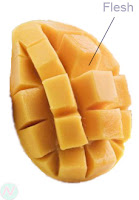 |
| Flesh |
Ø Flesh / fleʃ / (ফ্লেশ) n {SYN pulp} [the soft part of a fruit, vegetable, fish, and animal which is between the skin and bones/seeds] (ফল, সবজি বা প্রাণী দেহের মাংসল অংশ; কাঁচামাংস): The thorn went deep into the flesh of my hand. The flesh of the fruit is white.
Ø Skin / skɪn / (স্কিন্) n {Also peel} [the natural outer layer of tissue which covers an animal, fruit, vegetable, etc.] (<ফলের বা সব্জির>ছিলকা; গায়ের চামড়া ইত্যাদি):
<VERB> Skin / skɪn / (স্কিন্) v {Also peel} [to remove the skin of an animal, a fruit or a vegetable] (<ফল, প্রাণী ইত্যাদির ছিলকা>ছেলা): You will need four ripe mangoes, skinned and chopped.
 |
| Sour |
Ø Sour / ˈsaʊər / (ˈছাওয়র) adj [having a sharp, sometimes unpleasant, taste or smell, like that of a lemon or of fruit that is not ready to eat] (টক; টকে গেছে এমন): Sour mango. Sour milk
Ø Edible / ˈedəbl / (ˈএডএব্ল্) adj [fit or suitable to be eaten; not poisonous] (ভোজ্য; বিষমুক্ত): The food at the hotel was barely edible.
Ø Raw / rɔː / (রও) adj [<of food> not cooked] (কাঁচা): These fish are often eaten raw.
<SYN> Green / griːn / (গ্রীন) adj [<of fruit>not yet ready to eat] (<ফল সম্বন্ধে> কাঁচা): green mango
Ø Ripe / raɪp / (রাইপ্) adj [<of fruits or crops> fully developed and ready to be eaten or collected] (পাকা): Pick the mangoes before they get too ripe. Those bananas are not ripe yet – they are still green.
<VERB> Ripen / raɪpən / (রাইপএন) v [to make Sth ripe] (পাকানো; পেকে যাওয়া): The summer sunshine ripened the jackfruits. These mangoes are ripening nicely.
Ø Indigenous / ɪnˈdɪdʒənəs / (ইনˈডিজএনএছ্) adj [naturally existing in a place or country rather than arriving from another place] (দেশী; দেশজ): Indigenous fruits.
Ø Exotic / ɪgˈzɑːtɪk / (ইগˈজা্টিক) adj [from or in another country] (বিদেশী; বহিরাগত): I travel to all kinds of exotic locations all over the world.
Ø Reap / riːp / (রীপ্) v [to cut and collect a crop, especially from a field or garden] (<শস্য> কাটা; চয়ন /আহরণ করা): They are now reaping the fruits of all their hard work.
<SYN> Harvest
<NOUN> Reaper / ˈriːpər / (ˈরীপএর) n [a person or a machine that cuts and collects crops on a farm] ( ১। দাওয়াল ২। শস্য কর্তন যন্ত্র ):
Mango
Mango / ˈmæŋgoʊ / (ˈম্যাঙ্গৌ) n [an
ovaltropical
fruit with
smooth
yellow or red skin, soft and juicy orange-yellow flesh and a large hard seed in the middle] (আম): The
delicious
fruit mango is
nutritionallysuperior
, source, of several vitamins and minerals.
Ø Oval / ˈoʊvl / (ˈওউভ্ল) adj [shaped like an egg] (ডিম্বাকার; উপবৃত্তাকার): an oval mirror. An oval face. The leaves are long and almost oval.
Ø Tropical / ˈtrɑːpɪkl / (ˈট্রাঃপিক্ল্) adj [from or relating to the area between the two tropics] (গ্রীষ্মমণ্ডলীয়): The Amazon river basin contains the world’s largest tropical rainforest.
Ø Tropic / ˈtrɑːpɪk / (ˈট্রাঃপিক্) n [one of the two imaginary lines around the earth at approximately 23.5 degrees south of the equator] (বিষুবরেখার প্রায় ২৩.৫ ডিগ্রি উত্তরে এবং ২৩.৫ ডিগ্রি দক্ষিণে দুইটি কাল্পনিক রেখা; ক্রান্তিরেখা):
Ø Smooth / smuːð / (স্মূদ্) adj [completely flat and even, without any lumps, holes or rough areas] (মসৃণ): The road ahead was flat and smooth. This cream will help to keep your skin smooth.
<ANT> Rough
Ø Delicious / dɪˈlɪʃəs / (ডিˈলিশএছ্) adj [having a very pleasant taste or smell] (সুস্বাদু; উপাদেয়): The delicious smell of freshly cooked meat is coming from the kitchen.
Ø Nutrition / nuˈtrɪʃn / (নিউˈট্রিশ্ন্) n [the process by which living things receive the food necessary for them to grow and be healthy] (পুষ্টি): Good nutrition diet is essential if patients are to make a quick recovery.
<ADV> Nutritionally / nuˈtrɪʃnlɪ / (নিউˈট্রিশ্ন্লি): A nutritionally balanced food
Ø Superior / suːˈpɪriər / (ছূˈপিরিএর) adj [better in quality than Sb/Sth else] (শ্রেষ্ঠ; উৎকৃষ্ট): She was chosen for the job because she was the superior candidate.
Lychee
Lychee / laɪˈtʃiː / (লাইˈচী) n {[USA] Litchi} [a Chinese fruit with rough reddish
shell
and white flesh around has a
delicate
, whitish
pulp
with a
floral
smell and a
fragrant
, sweet
flavor
and a large blackish seed inside] (লিচু): On average, consuming nine peeled Lychee would meet adult’s daily vitamin C requirement.
 |
| Shell |
Ø Shell / ʃel / (শেল) n [the hard outer covering part of something especially nuts, eggs and some animals] (<ডিম, বাদাম, কোনোকোনো বীজ ও ফল এবং কিছুকিছু প্রাণিদেহের> শক্ত বহিরাবরণ; খোসা): Brazil nuts have very hard shells.
Ø Delicate / ˈdelɪkət / (ˈডেলিকএট্) adj [<of colors, flavors and smells> light and pleasant; not strong] (কোমল; রুচিকর; সুস্বাদু; সুপাচ্য): Patients should be served delicate food.
Ø Pulp / pʌlp / (পাল্প) n [the soft part inside some fruit and vegetables] (ফলের ভেতরকার নরম শাঁস): Please scoop out the pulp of the melon and serve it with light salt.
Ø Floral / ˈflɔːrəl / (ˈফ্লোরএল) n [made of flowers or decorated with pictures of flowers] (পুষ্পময়; ফুলেল): floral curtains/print
Ø Fragrant / ˈfreɪgrənt / (ˈফ্রেইগ্রএন্ট্) adj [with or having a pleasant smell] (সুগন্ধ; সুরভী; সুগন্ধি; সুবাস): The sauce itself was light, fragrant and slightly sweet.
Ø Flavor / ˈfleɪvər / (ˈফ্লেইভ্এর্) n [how food or drink tastes or a particular taste itself] (<খাওয়ার সময়> স্বাদ্গন্ধ): The lemon juice gives extra flavor to the sauce.
Longan
Longan / ˈlɑːŋɡən
/ (ˈলাঃঙগএন্)
n [a tropical fruit which is similar to but
smaller than the litchi, with a brown shell and sweet, the white pulp a round, shiny, black single seed or the evergreen tree on which this fruit grows] (কাঠলিচু):
Rambutan
Rambutan / ræmˈbuːtən
/ (র্যাম্বূটএন্) n [a
tropical fruit with a red or yellow hairy shell and edible white flesh around a
white seed, that has a slightly acidic taste, native to SE Asia] (রামবুটান):
Papaya
Papaya / pəˈpaɪə / (পএˈপাইএ) n [a large, oval, tropical fruit with yellow and green skin, orange or red sweet flesh and small round black seeds] (পেঁপে): Papaya plants come in three
sex
es, male, female, and
hermaphrodite
. The male
produce
s only
pollen
, never fruit. The female produces small, inedible fruits unless
pollinate
d. The hermaphrodite can self-pollinate since its flowers contain both male
stamen
s and female
ovaries
. Almost all commercial papaya contains only hermaphrodites.
Ø Sex / seks / (ছেক্ছ্) n [the state of being either male or female] (লিঙ্গ; স্ত্রী বা পুরুষ): What sex is your dog? Please indicate your sex and date of birth below.
<SYN> Gender
Ø Hermaphrodite / hɜːrˈmæfrədaɪt / (হা্রˈম্যাফ্রএডাইট্) n [a plant, person, animal or flower that has both male and female sexual organs or characteristics] (একাধারে স্ত্রী ও পুংলিঙ্গ কিংবা বৈশিষ্ট্য- সংবলিত প্রাণী, উভলিঙ্গ যেমন কেঁচো): Earthworm is a hermaphrodite animal.
Ø Produce / prəˈduːs / (প্রএˈডূছ্) v [to grow or make Sth as part of a natural process; to have a baby or young animal] (সৃষ্টি করা; জন্ম দেওয়া): My cat produced kittens last week.
Ø Pollen / ˈpɑːlən / (ˈপাঃলএন) n [fine power, usually yellow, that is formed in flowers and carried to other flowers of the same kind by the wind or by insects, to make those flowers produce seeds](পরাগ; পুষ্পরেণু):
<VERB> Pollinate / ˈpɑːləneɪt / (ˈপাঃলএনেইট) v [to put pollen into a flower or plant so that it produces] (পরাগ; পুষ্পরেণু): flowers pollinated by bees/ the wind.
Ø Stamen / ˈsteɪmən / (ˈস্টেইমএন) n [a small thin male part in the middle of a flower that produces pollen and is made up of a stalk supporting an anther](পুংকেশর): The center of each flower usually has several stamens.
Ø Ovary / ˈoʊvəri / (ˈওউভএরি) n {Plu. ovaries} [the part of any female animal or plant that produces eggs or seeds] (স্ত্রীজাতীয় প্রাণীদেহের ডিম্বকোষ বা ডিম্বাশয়; উদ্ভিদের বীজকোষ):
Plum
Plum / plʌm / (প্লাম্) n [a soft round fruit is usually of medium size, between 1 to 3 inches in diameter, globe to oval, with smooth green or purple skin, with a natural
waxy
surface that
adhere
s to the flesh and a single large hard seed insight] (আলুচা): Mature plum may have a dusty-white coating that gives them a glucose appearance.
Ø Wax / wæks / (ওঅ্যাকছ) n [a solid substance that is made from beeswax or from various fats and oils and used for making candles polish, models, etc. It becomes soft when it is heated] (মোম বা মোমজাতিয় পদার্থ): wax polish.
<ADJ> Waxy / ˈwæksi / (ˈওঅ্যাকছি) adj [made of wax; looking or feeling like wax] (মোমের মতো): The cheese has a red wax rind.
Ø Adhere / ədˈhɪr / (এডˈহিয়ার) v [to stick firmly to Sth] (<দৃঢ়ভাবে> লেগে থাকা বা সেঁটে থাকা): Clean the surface first, or the paint will not adhere.
Chinese Date
Chinese date / ˌtʃaɪˈniːz deɪt / (ˌচাইˈনীয ডেইট্) n {Also jujube or Indian jujube; Chinese apple; scientific name: Ziziphus mauritiana} [a small soft green fruit with one hard stone, that is a type of plum with soft juicy, white and crisp flesh ] (বরই):
Date
Date / deɪt / (ডেইট) n 1. [the fruit is known as a date with a sweet sticky brown flesh that grows on a tree, common in N Africa and W Asia] (খেজুর): Dates can be
dehydrate
d, ground and mixed with grain to form a nutritious stock feed.
2. Date / deɪt / (ডেইট) n [a particular day of the month, sometimes in a particular year, given in numbers and words] (তারিখ): What’s the date today? /What date is it? / What’s today’s date?
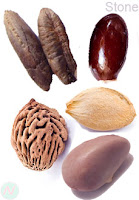 |
| 1. Stone |
Ø Stone / stoʊn / (স্টৌন্) n {US pit} 1. [a hard shell containing a large hard seed in the middle of some types of fruit] (কোনো কোনো ফলের শক্ত বিচি, যেমন লিচু, খেজুর, প্রভৃতি): Peaches, plums, dates, avocados, jackfruits, and olives all contain stones.
 |
| 2. Stone |
2. Stone / stoʊn / (স্টৌন্) n [the hard solid substance found in the ground which is often used for building, or a piece of this] (পাথর, প্রস্তর, শিলা): a primitive stone ax
Ø Dehydrate / diːˈhaɪdreɪt / (ডীˈহাইড্রেইট) v [to lose too much water from something] (জল শুন্য করা/ হওয়া): You will dehydrate very quickly in this heat if you do not drink lots of water.
Starfruit
Starfruit / ˈstɑːrfruːt / (ˈস্টাঃর ফ্রূট) n {Also carambola} [a yellowish tropical fruit with smooth peel and five-pointed, curved
section
s, making a star shape when
cut through
it,
hence
its name. The
entire
fruit is edible and is usually eaten
out of hand
. They may also be used in cooking and can be made into
relish
es, preserves, and juice drinks] (কামরাঙা): The flesh of star fruit is
crunchy
, firm, and extremely juicy.
 |
| Section |
Ø Section / ˈsekʃn / (ˈছেকশ্ন্) n [any of the parts into which Sth is divided] (অংশ; কোয়া; কোষ): the section of the orange
Ø <PHY—V> Cut through Sth [=to make a path or passage through Sth by cutting] (<কোনোকিছু> বরাবর কাটা): They used a machete to cut through the bush.
Ø Hence / hens / (হেনছ্) adv [for this reason] (এই ভাবে; এ কারণে): Her father is Italian, hence her name – Aster.
Ø Entire / ɪnˈtaɪər / (ইনˈটাইএর) adj [whole or complete, including everything, with nothing missing] (সম্পূর্ণ; পুরো; অখণ্ড): The entire area was hit by the cyclone.
<SYN> Whole
<ADV> Entirely / ɪnˈtaɪərli / (ইনˈটাইএরলী) adv [in every way possible; completely] (সম্পুর্ণরুপে; পুরাপুরি): I entirely agree with you. I admit it was entirely my fault.
Ø <PHR> Out of hand (=হাত থেকেই)
Ø Relish / ˈrelɪʃ / (ˈরেলিশ) v [to get great pleasure from Sth or to like or enjoy something] (উপভোগ করা; <কোনোকিছু> রুচিকর হওয়া): I always relish a challenge.
<NOUN> Relish [=to get great pleasure from Sth] (রুচি): He is eating the cake slowly but with relish.
Ø Juice / dʒuːs / (জূছ্) n [the liquid that comes from fruit or vegetables; a drink made from this] (<ফল, সবজি কিংবা মাংসের>রস): the grated rind and juice of two lemons
Ø Crunch / krʌntʃ / (ক্রানচ) v [to crush Sth noisily between teeth when you are eating] (কড়মড় বা কচমচ শব্দ করে চিবানো): He crunched his star fruit.
<ADJ> Crunchy / ˈkrʌntʃi / (ˈক্রানচি) adj [<especially of food> firm and crisp and making a sharp sound when you bite or crush it] (মুচমচে; কুড়মুড়ে): A crunchy fruit
Tamarind
Tamarind / ˈtæmərɪnd / (ˈট্যামএরিন্ড্) n [the tamarind tree produces edible,
pod
—like fruit which is used extensively in
cuisine
s around the world, other uses include traditional medicine and metal polish] (তেঁতুল): The tamarind is best described as sweet and sour in the test.
Ø Pod / pɑːd / (পাঃড) n [a long, narrow, flat case of some fruits, such as beans and peas, that contains the seeds and usually has a thick skin] (<মটরশুঁটি, শিম ইত্যাদির> বীজাধার বা খোসা): a pea pod (=মটরশুঁটির খোসা). A vanilla pod
Ø Cuisine / kwɪˈziːn / (ক্যুইˈজীন্) n [a style of cooking] (রান্নাবান্নার বিশেষ পদ্ধতি): Chinese cuisine
Water Chestnut
Water chestnut / ˈwɔːtər ˈtʃesnʌt / (ˈওয়াটএর্ ˈচেছনাট্) n {Also water caltrop} [floating annual aquatic plants, growing in slow-moving water up to 5 m deep, native to warm temperate parts of Eurasia and Africa. They bear ornately shaped fruits, each fruit contains a single very large, starchy seed, which is eaten] (পানি সিঙ্গারা/পানিফল):
Dragon Fruit
Dragon fruit / ˈdræɡən ˌfruːt / (ˈড্র্যাগএন্ ˌফ্রূট্) n [a night-blooming climbing cactus native to Mexico and Central America, cultivated in tropical regions for its edible fruit. The fruit of this plant, having bright red or yellow skin covered with large scales and white or pink flesh containing many small black seeds] (পিতায়া বা ড্র্যাগন ফল): This dragon fruit jelly tastes really good.
Pomelo
Pomelo / ˈpɑːməloʊ / (ˈপাঃমএলৌ) n [a large round fruit has very thick, pale green to yellow skin when ripe, with sweet whitish flesh and that tastes similar to a grapefruit, but sweeter] (জাম্বুরা; বাতাবী লেবু): Pomelo is a very good source of potassium, and each fruit contains roughly 37% of your daily requirement.
Grapefruit
Grapefruit / ˈgreɪpfruːt / (ˈগ্রেইপ্ফ্রূট্) n [a large round citrus fruit with a lot of slightly sour juice or tastes less sweet and yellow skin] (<স্বাদে টক, বড়ো কমলা জাতীয় ফল>মোসম্বি লেবু):
Lemon
Lemon / ˈlemən / (ˈলেমএন) n [an oval fruit, lemon is a small evergreen tree native to Asia. Which has a thick yellow peel and sour juice, its juice is about 5% to 6% citric acid, giving its distinctive sour taste and making it a key ingredient in drinks and food] (লেবু): Would you like a few drops of lemon juice in your tea?
Squeeze
the juice of half a lemon over the fish dish.
Ø Ingredient / ɪnˈgriːdiənt / (ইনˈগ্রীডিএনট) n [one of the things like food which is used with other foods to make a particular dish] (উপকরণ; উপাদান): Tamarind is a basic ingredient for many curries.
 |
| Squeeze |
Ø Squeeze / skwiːz / (স্কুঈজ্) v [to press something firmly, especially from all sides in order to change its shape, reduce its size or remove liquid from it] (কচলানো/ কচলিয়ে রস বেরকরা): Cut the lime in half and squeeze the juice into the bowl. She was squeezing his hand and smiled at him.
Lime
Lime / laɪm / (লাইম) n [a small round fruit containing a lot of juice that is sour like a lemon, but smaller and with green skin, but the lime is slightly sweeter than the lemon] (কাকজি লেবু; সরবতি লেবু): Both lemon and lime are good for health because they are high in vitamin C, but the lemon has more vitamin C than the lime.
Orange
Orange / ˈɔːrɪndʒ / (ˈওরিন্জ্) n [the round fruit, orange is the fruit of the
citrusspecies
, the orange is a hybrid between pomelo and mandarin, which has a thick reddish-yellow peel and a lot of sweet juice and it’s center flesh divided into many parts with very thin skin] (কমলা লেবু): freshly squeezed orange juice. Orange
grove
s
Ø Citrus / ˈsɪtrəs / (ˈছিটরএছ) n [any of a group of plants that produce acidic fruits with a lot of sour or sweet juice, such as pomelo; grapes; limes; lemons] (লবুজাতীয় ফল বিশেষ): The field was planted with citrus trees.
Ø Species / ˈspiːʃiːz / (ˈস্পীশীজ্) n [a group in which animals, plants, etc. that are able to breed with each other and produce healthy young are divided, smaller than a genius and identified by a Latin name] (প্রজাতি): a rare species of beetle.
Ø Grove / groʊv / (গ্রৌভ্) n [a small area of land with fruit trees planted close together of particular types on it] (তরুবিথী; কুঞ্জবন; উপবন): an apple grove grows around the village.
Mandarin
Mandarin / ˈmændərɪn / (ˈম্যানডএরিন) n [a type of small sweet orange but with a thinner, looser skin that comes off very easily] (পাতলা খোসাযুক্ত ছোটাকৃতি সুমিষ্ট কমলাফল): Mandarin sections are peeled to remove the white
pith
with carefully; otherwise, they turn
bitter
.
Ø Pith / pɪθ / (পিথ্) n [a soft, dry white substance between the skin and the flesh of citrus fruits such as oranges] (<কমলা লেবুর খোসার ভিতর অনুরুপ পাতলা, নরম, স্বচ্ছ> খোসা):
 |
| Bitter |
Ø Bitter / ˈbɪtər / (ˈবিটএর) adj [<of food, etc.> having a strong, unpleasant taste; not sweet] (তিক্ত; কটু; তিতা): Black coffee leaves a bitter taste in the mouth.
<SYN> Sharp
Malta
Malta / mʌltə / (মাল্টএ) n (মালটা)
Satsuma
Satsuma / sætˈsuːmə / (ছ্যাটˈছূমএ) n [a type of small orange without seeds/pip with
loose
skin that can be removed easily] (<ছোট আকারের সুগনন্ধ যুক্ত, ঢিলা খোসা বিশিষ্ট কমলা লেবু> ঢিখোসা-কমলা লেবু):
Ø Loose / luːs / (লূছ্) adj [not firmly fixed where it should be; able to become separated from Sth] (ঢিলা; শিথিল; ছাড়া): a loose tooth
Tangerine
Tangerine / ˈtændʒəriːn / (ˈট্যানজএরীন্) n [a fruit like a small orange with loose skin that comes off easily] (ছোট কমলা লেবু):
Tangelo
Tangelo / ˈtændʒəloʊ / (ˈট্যান্জএলৌ) n [a fruit like an orange, produced by a h
ybrid
of the tangerine trees with grapefruit trees] (সঙ্কর-কমলা):
Ø Hybrid / ˈhaɪbrɪd / (ˈহাইব্রিড্) n [a plant or animal that has been produced from two different types of plant or animal, especially to get better something] (সঙ্কর; উচ্চফলন শীল): The garden strawberry is a large fruited-hybrid.
Persimmon
Persimmon / pərˈsɪmən / (পএর্ˈছিমএন্) n [a sweet tropical fruit that looks like a large orange tomato] (টমলা ফল):
Blackberry
Blackberry / ˈblækberi / (ˈব্ল্যাকবেরি) n [a small soft black fruit that grows on the tree] (কাল জাম): Blackberry is thought to be a
viable
medication for treating diabetes.
Ø Viable / ˈvaɪəl / (ˈভাইএবল্) adj [able to work as intended or able to succeed] (টিকে থাকতে সামর্থ; টেকসই): None of the projects proved financially viable. I am afraid your plan is not politically viable.
<SYN> Feasible
Raspberry
Raspberry / ˈræzberi / (র্যাজ্বেরি) n [a small, soft dark red fruit or the bush on which it grows] (কন্টকগুল্ম ফল): rows of raspberry canes
Blueberry
Blueberry / ˈbluːberi / (ˈব্লূবেরি) n [the dark blueberry fruit that grows on
bush
es in North America, similar to bilberry and can be eaten] (নীলফল; ব্লূবেরি):
Ø Bush / bʊʃ / (বুশ্) n [a plant that grows thickly with several hard stems growing either directly from the ground or from a hard woody stem, giving the plant a rounded shape] (গুল্ম; ঝোপ; ঝাড়): holly bushes
Strawberry
Strawberry / ˈstrɔːberi / (ˈস্ট্রোবেরি) n [actually strawberry is a plant. It is cultivated worldwide for its fruit, which flower is white on that, this fruit frowns is called also strawberry. It is a soft and small juicy red fruit with very small yellow seeds on the surface and is widely
appreciate
d for its characteristic aroma, bright red color, juicy texture, and sweetness. It is consumed in large quantities, either fresh or in prepared foods] (ছোট্ট রসালো একধরনের ফল; স্টোবেরি): I thought we would have strawberries and cream for
dessert
.
Ø Appreciate / əˈpriːʃieɪt / (এˈপরীশিএইট্) v [to recognize or understand that something is valuable, important or as described] (সঠিকভাবে মূল্যায়ন করা; কদর করা): Only a trained person is able to appreciate a modern painting.
Ø Dessert / dɪˈzɜːrt / (ডিˈজা্র্ট) n [sweet food is eaten at the end of a meal] (ভোজের শেষে পরিবেশিত ফল বা মিষ্টান্ন ইত্যাদি): What’s for dessert? For dessert, there is apple pie, cheesecake or fruits.
Gooseberry
Gooseberry / ˈguːsberi / (ˈগূজ্বেরি) n [a small green fruit covered with short hairs, which grows on a bush and has a sour taste] (বৈঁচি লতা ফল): Gooseberries are used for making pies and jam.
Indian Gooseberry
Indian gooseberry / ˈguːsberi / (ˈগূজ্বেরি) n {Also amla or amalaki}[a small, round and glossy green fruit that grows on a tree, Its taste sour and are usually cooked to make jam,
pickle
, etc.] (আমলকী): the gooseberry fruit is eaten raw or cooked into various dishes.
Ø Pickle / ˈpɪkl / (ˈপিকল) n [a thick spicy sauce made from fruit or vegetables which have been preserved in a vinegar sauce or salty oil] (আঁচার): Have some pickles with your salad.
Blackcurrant
Blackcurrant / ˌblækˈkɜːrənt / (ˌব্ল্যাকˈকাঃরএন্ট্) n [a small round dark purple berry that grows in bunches on a garden bush and can be eaten] (জাম বা বৈঁচিজাতীয় ফল বিশেষ; কারেন্ট জাম <ফল>): blackcurrant jam
Redcurrant
Redcurrant / ˌredˈkɜːrənt / (ˌরেড্ˈকাঃরএন্ট্) n [a very small red berry fruit that grows in bunches on a bush and can be eaten] (রেড কারেন্ট ফল):
Olive
Olive / ˈɑːlɪv / (ˈআলিভ) n {<India> amla} [a small bitter green or black fruit with a strong taste, used in cooking or used to produce oil] (জলপাই): The olive tree is very hardy, drought, disease and fire-resistant, it can live to a great age.
Elephant Apple
Elephant apple / ˈelɪfənt ˈæpl / (ˈএলিফএন্ট্ ˈএ্যাপল্) n {Also chulta; scientific name: Dillenia indica} [a round large fruit with greenish yellow color, it has many seeds and is edible. It has 15 carpels, each carpel containing five seeds embedded in] (চালতা):
Monkey Jack
Monkey jack / ˈmʌŋki dʒæk / (ˈমাঙ্কি জ্যাক্) n {Also money fruit; barhar; scientific name: Artocarpus lacucha} [] (ঢেউয়া বা বত্তা):
Kumquat
Kumquat / ˈkʌmkwɑːt / (ˈকাম্কোঅট্) n [an oval fruit which looks like a small orange and has a sweet skin that can be eaten, and has sour flesh] (কাম্কোয়াট ফল):
Apple
Apple / ˈæpl / (ˈঅ্যাপল) n [a round fruit with shiny red or green skin and firm white flesh] (আপেল ফল): Apples are commonly stored in chambered with higher concentrations of carbon dioxide and high air filtration.
 |
| Adam’s Apple |
Adam’s Apple / ˌædəmˈʒ ˈæpl / (ˌএ্যাডএমˈজ ˈঅ্যাপল ) n [the
lump
at the front of the throat that
sticks out
, and usually moves up and down as you speak or
swallow
] (মানুষের গলার সম্মুখভাগের উন্নত অংশ; কণ্ঠমণি):
Ø Lump / lʌmp / (লাম্প) n [a piece of Sth hard or solid, usually without a particular shape] (পিণ্ড; খণ্ড):
Ø <PHR-V> Stick out [=to be further out than Sth else or come through a hole] (প্রলম্বিত বা অভিক্ষিপ্ত হওয়া; <কোনোকিছু ভিতর থেকে> বার করা বা হওয়া): Do not stick your hand out of the car window. Please stick out your tongue.(=জ্বিববা বের কর)
Ø Swallow / ˈswɑːloʊ / (ˈছোয়ালৌ) v [to cause food, drink, or pills, etc. go down your throat into your stomach] (গেলা; গলাধঃকরণ করা; ঢোক গেলা): Always chew food well before swallowing it.
Nectarine
Nectarine / ˈnektəriːn / (ˈনেক্টএরীন্) n [a type of round red and yellow, sweet juicy fruit, like a peach but with a smooth skin] (<একধরণের মসৃণ পাতলা ত্বক ও ঘন শাঁসযুক্ত পিচফল বিশেষ>সুধাফল):
Passion Fruit
Passion fruit / ˈpæʃn fruːt / (ˈপ্যাশন্ ফ্রূট্) n [a small tropical fruit with a thick purple skin and many seeds inside, produced by some types of
passion
flower] (আবেগ ফল):
Ø Passion / ˈpæʃn / (ˈপ্যাশ্ন্) n [a very powerful feeling, for example of sexual attraction, love, hate, anger or other emotion] (প্রবল অনুরাগ/উৎসাহ/ঘৃণা/ক্রোধ; আবেগ): He is a man of violent passions.
Custard Apple
Custard Apple / ˈkʌstərd ˈæpl / (ˈকাছটএর্ড ˈঅ্যাপল) n [the custard apple is a large green tropical fruit with black seeds; it is deliciously creamy, fleshy, white and sweet. Its taste like custard] (আতা): Taiwan is famous for producing a hybrid of custard apples as well, called pineapple-custard apples and sugar apples.
Sugar Apple
Sugar apple / ˈʃʊɡər
ˈæpəl / (ˈশুগএর ˈঅ্যাপল)
n {Also sweetsop} [a small West Indian
tree, or a heart-shaped fruit of this tree which has a green scaly rind and
sweet edible pulp] (সরিফা):
Wood Apple
Wood apple / wʊd ˈæpl / (উউড ˈঅ্যাপল) n [wood apple is round in shape and has a green or yellow hard outer shell with yellowish
rind
and orange, brown sweet
gummy
pulp, it is consumed as raw, jams, juice, drinks, syrups and many health drinks](বেল):
Ø Rind / raɪnd / (রাইন্ড্) n [the hard thick layer or outer skin of some particular fruits] (আস্তর বা ছাল): Wood apple/coconut rind
Ø Gum / gʌm / (গাম্) n [a sticky substance produced by some types of trees] (আঠা; গঁদ):
<ADJ> Gummy / ˈgʌmi / (ˈগামি) adj [sticky or covered in gum] (আঠালো):
Pear
Pear / per / (পেয়ার) n [a green sweet fruit with a lot of juice that is narrow at the top and wide at the bottom] (নাশপাতি):
Fig
Fig / fɪg / (ফিগ) n (Also Tin fruit) [a soft, sweet,
purple
or green fruit that is full of small red seeds and often eaten dried] (ডুমুর): Figs have
insoluble
fiber, which has a beneficial effect on the health of the
colon
; fiber regulates digestion and allows normal
defecation
. Figs – natural cure for
constipation
and
upset
stomach.
Ø Purple / ˈpɜːrpl / (ˈপার্প্ল্) adj [having the color of blue and red mixed together](লাল এবং নীলের মিশ্রণে সৃষ্ট রং; রক্তবর্ণ): a dark purple bruise. Her face is purple with rage.
Ø Insoluble / ɪnˈsɑːliəbl / (ইনˈছাঃলিএবল্) adj [<of a substance> that does not dissolve in a liquid] (<পদার্থ সম্বন্ধে>অদ্রাব্য; আদ্রবণীয়): These minerals are all insoluble in water.
Ø Colon / ˈkoʊlən / (কৌলএন) n [the lower and bigger half of the bowels in which water is removed from solid waste] (মলাশয়):
Ø Defecate / ˈdefəkeɪt / (ˈডেফএকেইট) v [to pass the contents of the bowels out of the body] (মলত্যাগ করা; পায়খানা করা): I need to defecate.
<NOUN> Defecation /ˌdefəkeɪʃn / (ˌডেফএকেইশ্ন্) n [] (মলত্যাগ বা পায়খানা): Regular clear defecation is good for health.
Ø Constipation / ˌkɑːnstɪˈpeɪʃn / (ˌকাঃনছ্টিˈপেইশ্ন্) n [the condition of being unable to get rid of waste material from bowls easily] (কোষ্ঠকাঠিন্য; কষাপায়খানা):
Ø Upset / ʌpˈset / (আপˈছেট) v [to make Sb feel sick after they have eaten or drunk Sth] (<কোনোকিছু খাওয়ার পর> পেট গন্ডগোল করা): He cannot take milk – it upset his stomach.
Mangosteen
Mangosteen / ˈmæŋgəstiːn / (ˈম্যাঙ্গএস্টিন) n [tropical fruit mangosteen with a thick reddish-brown skin and sweet flesh with a lot of sweet and tangy juice, somewhat fibrous] (গাবফল): Mangosteen twigs have been used as chew sticks in Ghana.
Ø Tang / tæŋ / (ট্যাঙ্) n [a strong, sharp taste or smell] (তীব্র বা কড়া স্বাদ বা গন্ধ): the tang of lemons
Tangy / ˈtæŋi / (ˈট্যাঙি) adj [a tangy flavor is pleasantly strong and sharp] (কড়া স্বাদ বা গন্ধযুক্ত): a refreshingly tangy lemon flavor.
 |
| Twig |
Ø Twig / twɪg / (টুইগ্) n [a small and very thin branch that grows out of a large branch on a tree] (গাছের ছোট ডাল; উপশাখা; শাখিকা; প্রশাখা; ফেঁকড়ি): I collected dry many twigs to set the fire.
Ø Chew / tʃuː / (চূ) v [to bite food into small pieces in your mouth with your teeth to make it easier to swallow] (চিবানো): You do not chew your food enough – that’s why you get indigestion.
Watermelon
Watermelon / ˈwɔːtərmelən / (ˈওয়াটএর মেলএন) n [watermelon is a vine-like flowering plant is thought to have originated in southern Africa, where it is found growing wild. It is a large, sprawling annual plant with a smooth hard rind, usually green with dark green stripes spots, and a red juicy sweet interior flesh and many black seeds] (তরমুজ): Watermelon rinds are also edible, but most people avoid eating them due to their unappealing flavor.
Ø Sprawl / sprɔːl / (স্প্রোল্) v [to spread in an untidy way; to cover a large area] (এলোমেলো ও অসমভাবে বেড়ে ওঠা বা ছড়িয়ে পড়া): The town sprawled along the side of the lake.
<ADJ> Sprawling / ˈsprɔːlɪŋ / (ˈস্প্রোলিং) adj [spreading in an untidy way] (অপরিকল্পিত বা এলোমেলো ভাবে বেড়ে ওঠা): a modern sprawling town
Ø Stripe / straɪp / (স্টাইপ্) n [a long narrow line of color that is a different color from the surrounding areas] (ডোরা বা ডোরাকাটা দাগ): The Zebra is a wild African horse with black and white stripes.
Ø Interior / ɪnˈtɪriər / (ইনˈটিরিএর) n [the inside part of Sth] (ভেতরকার; অভ্যন্তরীণ): The car’s interior is very impressive – wonderful leather seats and a wooden dashboard.
<ANT> Exterior
Ø Unappealing / ˌʌnəpiːlɪŋ / (ˌআনএপীলিং) adj [not attractive or interesting] (বিষাদ বা আকর্ষণহীন):
Cantaloupe Fruit
Cantaloupe / ˈkæntəluːp / (ˈক্যান্টএলূপ্) n [a type of melon (= large fruit with a thick skin) that is round and has yellow or green skin with sweet orange flesh] (ফুটি বা খরমুজ):
Honeydew Melon
Honeydew melon / ˌhʌniduː ˈmelən /(ˌহানিডূ ˈমেলএন) n [honeydew a type of melon is large, round to slightly oval shape, that has white, green or yellow skin, like most fruit, honeydew has seeds, its thick, juicy, sweet flesh is often eaten for dessert.] (বাঙ্গি; বাঙ্গী): Honeydew melon has to fully ripen before they are picked, do not plan on picking any early.
<SYN> Yellow melon
Melon
Melon / ˈmelən / (ˈমেলএন্) n [a large round fruit with hard green, orange, or yellow skin, sweet juicy flesh, and a lot of seeds] (মেলন ফল; মুজ ফল): a slice of melon
Burmese Grape
Burmese grape / bɜːrˈmiːz greɪp / (বা্রমীজ্ গ্রেইপ্) n [Burmese grape tree is a slow-growing evergreen tree with oval, colored yellowish, pinkish to bright red or purple fruits, with 2.5- 3.5 cm in diameter with 2-4 large purple-red seed, with white aril, eaten raw, stewed or made into wine] (লটকন):
Cherry
Cherry / ˈtʃeri / (ˈচেরি) n [a small soft round fruit with shiny red or black skin with a single large hard seed in the middle] (চেরি ফল): a cherry tree will take three to four years to produce its first crop of fruit and seven years to attain full maturity, because of the cold-weather requirement, none of the
prune
s family can grow in tropical climates.
Prune
Prune / pruːn / (প্রূন) n [a dried plum that is often eaten cooked] (আলুবোখারা):
Pomegranate
Pomegranate / ˈpɑːmɪgrænɪt / (ˈপাঃমিগ্র্যানিট) n [the pomegranate is considered to have originated in the region of Iran and has been cultivated since ancient times. It is around the fruit with thick, smooth skin and red flesh, full of large seeds and a lot of juice](ডালিম): The rind of the fruit and bark of the pomegranate tree is used as a traditional
remedy
against diarrhea, dysentery, and
intestinalparasite
s.
Ø Remedy / ˈremədi / (ˈরেমএডি) n [a treatment or medicine to cure a disease or reduce the pain that is not very serious] (প্রতিকার; প্রতিষেধক): An excellent home remedy for headaches.
Ø Intestine / ɪnˈtestɪn / (ইনˈটেছটিন) n [a long tube in the animal body between the stomach and the anus, food passes from the stomach to the small intestine and from there to the large intestine] (পাকস্থলী থেকে মলদ্বার পর্যন্ত খাদ্যনালীর নিম্নাংশ; অন্ত্র): Small intestine; Large intestine.
<ADJ> intestinal / ɪnˈtestɪnl / (ইনˈটেছটিনল্) adj (আন্ত্রিক): Intestinal disorders (=আন্ত্রিক গোলমাল)
Ø Parasite / ˈpærəsaɪt / (ˈপ্যারএছাইট) n [a small creature that lives on or inside another animal or plant and gets its food from it] (পরজীবী; পরভুকপ্রাণী বা জীবাণু; পরগাছা): flea(মক্ষিকা), louse; and other parasites.
Pineapple
Pineapple / ˈpaɪnæpl / (ˈপাইনঅ্যাপল) n [a large tropical fruit with rough, orange or brown skin, sweet yellow flesh with a lot of juice and
stiff
leaves on top] (আনারস): Pineapples can be consumed fresh, cooked, juiced, and preserved and are found in a wide
array
of cuisines.
Ø Stiff / stɪf / (স্টিফ্) adj [firm and difficult to bend or move] (অনমনীয়; সহজে বাকানো যায়না এমন): This hairspray has made my hair stiff.
Ø Array / əˈreɪ / (এˈরেই) n [a group or collection of things or people, often one that is large or impressive] (প্রদর্শনী): a dazzling array of talent(=প্রতিভাবানদের চোখ ধাঁধানো মিলনমেলা)
Grape
Grape / greɪp / (গ্রেইপ) n [a small round green or purple fruit that grows in
bunch
es on a climbing plant, it can be eaten raw or they can be used for making wine, jam, juice, jelly, grape seed
extract
, raisins, vinegar, and grape seed oil] (আঙ্গুর): Wine grapes are smaller, usually seeded and have relatively thick skins.
Ø Bunch / bʌntʃ / (বানচ) n [a number of things of the same type which are growing or fastened together] (গুচ্ছ; কাঁদি; তোড়া; থোকা): a bunch of grapes/Lychee. He picked me a bunch of roses.
Ø Extract / ˈekstrækt / (ˈএকছ্ট্র্যাক্ট) v [to remove or obtain a substance from Sth, for example by using an industrial or a chemical process] (<নির্যাসাদি> বের করা): The oil which is extracted from the palms is used for cooking.
<NOUN> Extract [a substance taken from a plant, flower, fruit, etc. and used especially in food or medicine] (নির্যাস): The cream contained extracts from several plants.
Wax Jambu
Wax jambu / wæks-dʒæmbʊ / (ওঅ্যাক্ছ্— জ্যামবু) n [it looks like a pear-shaped fruit with waxy, thin
pink
skin and crispy white flesh, which is
regularly
juicy, with a
faintly
sweet taste] (জামরুল): Wax Jambu uses to add taste to salads.
Ø Pink / pɪŋk /পিঙ্ক) adj [pale red in color] (গোলাপি বা ম্লান লাল রং): Have you been in the sun? Your cheek is a bit pink.
Ø Regularly / ˈregjələrli / (ˈরেগ্যিউলএরলি) adv [often] (প্রায়): I go there quite regularly.
Ø Faint / feɪnt / (ফেইনট) adj [that cannot be seen, heard or smelt] (অস্পষ্ট; ক্ষীণ): a faint smell of perfume.
<SYN>Slight
Hog Plum
Hog plum / hɑːgplʌm / (হাঃগপ্লাম) n [] (আমড়া; বিলাতী আমড়া):
Palmyra Palm
Palmyra palm / ˈpɑːlmɪrʌ pɑːm / (ˈপাঃলমিরা পাঃম) n [Palmyra is a fruit that grows on palmyra palm. The fruits are round with a black
husk
and are borne in clusters. When the fruits are cut off to reveal the three sweet jelly seed
socket
s,
translucent
pale-white, similar to that of the Lychee but with a milder flavor and no
pit
. The jelly part of the fruit is covered with a thin, yellowish-brown skin with watery fluid inside the fleshy white body] (তাল): The ripened fibrous outer layer of the palm fruits can also be eaten raw, boiled, or roasted. Bengali people have
perfect
ed the art of making various sweet dishes with the yellowish
viscous
fluid substance obtained from ripe palm fruit.
Ø Husk / hʌsk / (হাছ্ক্) n [the dry outer covering of nuts, fruits, and some seeds] (তুষ; খোসা): Brown rice has not had the husks removed.
Ø Socket / ˈsɑːkɪt / (ˈছাঃকিট) n [a curved hollow space in the surface of Sth that another part fits into or moves around in] (যে স্বাভাবিক বা কৃত্রিম গর্তের মধ্যে কোনোকিছু বসে বা গোরে; কোটর): His eyes bulged in their sockets.
Ø Translucent / trænsˈluːsnt / (ট্র্যানছ্ˈলূছন্ট) adj [allowing light to pass through, but not transparent] (আলোকপ্রবাহী কিন্তু অস্বচ্ছ; আংশিকস্বচ্ছ): The sky is a pale translucent blue.
Ø Pit / pɪt / (পিট) n [a hard shell containing the nut or seed in the middle of some types of fruit] (<কিছুকিছু ফলের> শক্ত বীচি): Cheery/Peach pit
Ø Perfect / ˈpɜːrfkɪt / (ˈপা্র্ফিক্ট্) v [to make something free from faults or as good as you can] (নিখুঁত বা উৎকৃষ্ট করে তোলা): They have perfected the art of Palmyra palm juice making.
Ø Viscous / ˈvɪskəs / (ˈভিছকএছ্) adj [<of a liquid> thick and sticky; not flowing easily] (আঠালো, চটচটে গাড়ো রস):
Coconut
Coconut / ˈkoʊkənʌt / (ˈকৌকএনাট) n [the large nut of a tropical tree called a coconut palm. It grows inside a hard shell containing hard white flesh that can be eaten and juice that can be drunk] (নারকেল): He broke open the coconut and drank its sweet milk.
How to open a green coconut
Green Coconut / griːn ˈkoʊkənʌt / (গ্রীন ˈকৌকএনাট) n [] (ডাব):
Guava
Guava / ˈgwɑːvə / (ˈগোআঃভএ) n [a round or oval tropical fruit with a
pronounced
and typical fragrance, similar to lemon rind; but less sharp, the outer skin may be rough, often with a bitter taste, or soft and sweet, the skin can be any thickness is usually green before maturity, but becomes yellow or green when ripe. The pulp inside may be sweet or sour and off-white to deep pink. The seeds in the central pulp vary in number and hardness, depending on species] (পেয়ারা):
Ø Pronounced / prəˈnaʊnst / (প্রএˈনৌনছ্ট্) adj [very noticeable, obvious or strongly expressed] (বিশেষ ধরণের; ব্যতিক্রমধর্মী): I am told I have a very pronounced English accent when I speak Italian
Strawberry Guava
Strawberry Guava / ˈstrɑːberi
ˈgwɑːvə / (স্ট্রাঃবেরি ˈগোআঃভএ) n [Psidium
cattleyanum is the scientific name, commonly known as cattley guava, strawberry
guava or cherry guava, is a small tree in the Myrtaceae (myrtle) family. The
species is named in honor of English horticulturist William Cattley.] (স্ট্রাবেরি
পেয়ার):
Banana
Banana / bəˈnænə / (বএˈন্যানএ) n [a long curved fruit with a thick or yellow skin and soft sweet white flesh inside, the fruits grow in clusters hanging from the top of the plant] (কলা): Bananas are an excellent source of vitamin B6 and contain moderate amounts of vitamin C, exceptional potassium, and dietary fiber.
Peach
Peach / piːtʃ / (পীচ্) n [a round fruit with sweet yellow flesh that has a lot of juice, a slightly furry red and yellow skin and large rough seed inside] (পীচ ফল):
Apricot
Apricot / ˈæprɪkɑːt / (ˈএ্যাপ্রিকাঃট্) n 1. [a small, round and soft fruit with yellow or orange furry skin and a large seed inside] (খুবানি <ফল>): dried apricot
2. Apricot / ˈæprɪkɑːt / (ˈএ্যাপ্রিকাঃট্) n [a yellowish-orange color] (হরিদ্রাভ-কমলা রং): The bedroom was painted apricot and white.
Kiwifruit
Kiwifruit / ˈkiːwi—fruːt / (ˈকীউঈ-ফ্রূট্) n {Al. Chinese gooseberry} [a small oval fruit with thin brown skin covered with small hairs, soft green flesh, and black seeds] (কীউঈ-ফল):
Sapodilla
Sapodilla / ˌsæpəˈdɪlə / (ˌছ্যাপএˈডিলএ) n [manilkara zapota, commonly known as the sapodilla is a
long-lived
,
evergreen
, tropical American tree, it is also grown in large quantities in Pakistan, India, Thailand, Malaysia, Cambodia, Indonesia, Vietnam, Bangladesh, and Mexico. That produces a fruit, that can be eaten and
chicle
(= a substance used in chewing gum)] (সফেদা):
Ø Long-lived / lɔːŋ-ˈlɪvd / (লোঙ-ˈলিভড্) n [having a long life; lasting for a long time] (দীর্ঘজীবী): This type of tree can be exceptionally long-lived.
Ø Evergreen / ˈevərgriːn / (ˈএভএর্গ্রীন্) n [describes a plant, bush, or tree which has green leaves all through the year] (চির সবুজ <বৃক্ষ>): Few trees grow under the dense shade cast by the evergreens.
Ø Chicle / ˈtʃɪkl / (ˈচিক্ল্) n [a substance produced by the sapodilla tree and used to make chewing gum] (লজেন চুষ তৈরির মূল উপাদান):
Avocado
Avocado / ˌævəˈkɑːdoʊ / (ˌএ্যাভএˈকাঃডৌ) n [a tropical fruit with hard, thick, dark green or purple skin and oily, soft light green flesh and a large seed inside. They are not sweet and are sometimes eaten at the beginning of a meal] (নাশকাদো):
Jackfruit
Jackfruit / ˈdʒækfruːt / (ˈজ্যাকফ্রুট) n [the jackfruits also known as jack tree, jackfruit, or sometimes simply jack. The flesh of the jackfruits is
starchy
and fibrous and is a source of
dietary
fiber. The flavor is comparable to a combination of apple, pineapple, mango, and banana] (কাঁঠাল): Ripe jackfruit is naturally sweet with
subtle
flavoring. Jackfruit seeds are rich in protein.
Ø Starchy / ˈstɑːrtʃi / (ˈস্টাঃর্চি) adj [<of food> containing a lot of starch] (শ্বেতসারযুক্ত; <ভাতের> মাড়ের মত): Starchy foods like rice and bread.
Ø Dietary / ˈdaɪətəri / (ˈডাইএটএরি) adj [relating to diet] (পথ্যবিধি সংক্রান্ত): A patient must follow dietary rules/advice prescribed for him.
Ø Subtle / ˈsʌtl / (ˈছাটল) adj [not very noticeable or small but important] (সূক্ষ্ম; নিগুঢ়; অতিসূক্ষ্ম): subtle colors/flavors, etc. There are subtle differences between the two versions.
Durian
Durian / ˈdʊriən / (ˈডুরিএন্) n [a large tropical fruit with a strong
unpleasant
smell but a sweet flavor] (দুরিয়ান ফল):
Ø Unpleasant / ʌnˈpleznt / (আন্ˈপ্লেজ্ন্ট্) adj [not enjoyable or pleasant] (অরুচিকর; অপ্রীতিকর): His clothes smelled most unpleasant.
Breadfruit
Breadfruit / ˈbredfruːt / (ˈব্রেড্ফ্রূট্) n [a large tropical fruit with a thick skin, that tastes and feels like
bread
when it is cooked, it grows on a tree which is called a breadfruit tree] (<এক প্রকার পলিনেশীয় বৃক্ষের ফল যা উত্তপ্ত করলে রুটির মতো স্বাদ ও গন্ধ হয়>রুটি ফল):
Ø Bread / bred / (ব্রেড্) n [a food made from flour, water, and usually yeast, mixed together and baked] (রুটি; পাউরুটি): a loaf of bread
Medlar
Medlar / ˈmedlər / (মেড্লএর্) n [a brownish fruit which is eaten when it has started to decay and become soft] (খোবানি ফল):
Rhubarb
Rhubarb / ˈruːbɑːrb / (ˈরূবাঃর্ব্) n [a garden plant which has thick, long sour-tasting red and green
stem
s, that are cooked and eaten as a fruit] (<পুরু রসালো লতা বিশেষ, যা সিদ্ধ করে ফলের মতো খাওয়া যায়>রেউচিনি; পীতমূলী): Have you ever eaten rhubarb crumble?
Ø Stem / stem / (স্টেম্) n [the main long thin part of a plant above the ground from which the leaves or flowers grow] (<বৃক্ষের>ডাটা): a tall plant with branchy stem
Orchard
Orchard / ˈɔːrtʃərd / (ˈওর্চএর্ড) n [a piece of land, normally separated from the surrounding area, in which fruit trees are grown] (ফলের বাগান): apple orchard
Garden
Garden / ˈgɑːrdn / (ˈগাঃর্ড্ন্) n [a piece of land next to or around to a house, where flower, fruit, and vegetable plants are grown, and often containing an area of grass] (বাসা সংলগ্ন বাগান): The house has a large back garden and a small front garden. A vegetable garden
Grove
Grove / groʊv / (গ্রৌভ) n [a small area of land with fruit trees planted close together of particular types on it] (উপবন; তরুবীথি; কুঞ্জবন): Apple groves grow around the village
Fruits Names, English & Bangla Meaning & Images
Noted From Wikipedia, Google Image, Oxford & Cambridge Dictionary
Download

Skip this Video
Loading SlideShow in 5 Seconds..
Word Meaning PowerPoint Presentation
Download Presentation
Word Meaning
— — — — — — — — — — — — — — — — — — — — — — — — — — — E N D — — — — — — — — — — — — — — — — — — — — — — — — — — —
Presentation Transcript
-
5 Word Meaning
-
Word Meaning • Two aspects of a word: • 1. form—sound and spelling • 2. content—meaning • cat /kæt/ = a small four-legged animal with soft fur and sharp claws • Word-meaning is what the word denotes.
-
5.1 The Meanings of ‘meaning’ Meaning is reference.
-
5. 1. 1. Reference • the meaning triangle concept/idea referent reference train /trein/
-
5. 1. 1. Reference • Meaning is reference. • Reference is the connection between the word form and what the form refers to in the world. • Reference is the relationship between language and the world.
-
5.1.2 Concept • Meaning is concept.
-
5.1.2 Concept • Meaning and concept are closely connected but not identical. • Concept is beyond language. • It is the result of human cognition, reflecting the objective world in the human mind.
-
5. 1. 1. Concept • the meaning triangle concept/idea referent reference train /trein/
-
5.1.2 Concept • Concept is universal to all men alike regardless of culture, race, language and so on, whereas meaning belongs to language, so is restricted to language use.
-
5.1.2 Concept • 妇女 • Frau • femme concept language
-
5.1.2 Concept • 很多 • (concept) • much time many people • much money many books • much water many buildings
-
5. 1. 3. Sense • Meaning is sense.
-
5. 1. 3. Sense • Difference: • Reference is connected with language. • Concept is beyond language. • Sense is within the language.
-
5. 1. 3. Sense • Every word that has meaning has sense, but not reference. • probable, nearly, and, if, but, yes • pavement—sidewalk • pal—chum
-
5. 1. 3. Sense • So in most cases, when we talk about the meaning of a word, we actually mean sense.
-
5.2 Motivation
-
5.2 Motivation • Motivation accounts for the connection between the linguistic symbol and its meaning. • Since the relationship between the word-form and meaning is conventional and arbitrary, most words can be said to be non-motivated.
-
5.2 Motivation • But English does have words whose meanings can be reasonably explained to a certain extent. • There are mainly four types of motivation.
-
5. 2. 1. Onomatopoeic Motivation • Words whose sounds suggest their meanings = onomatopeic words • Two types of words according to their sound similarity
-
5. 2. 1. Onomatopoeic Motivation • 1. Primary onomatopoeia • bow wow ha ha • ping-pong miaow • cuckoo tick-tuck
-
5. 2. 1. Onomatopoeic Motivation • 2. Secondary onomatopoeia • cock—crow • duck—quack • frog—croak • mice—squeak • horse—neigh • goat—bleat
-
5. 2. 2. Morphological Motivation • Examples: • airmail: mail by air • reading-lamp: lamp for reading • miniskirt: small skirt • The morphological structure suggests the meanings of the words.
-
5. 2. 2. Morphological Motivation • BUT • blackmail≠ mail black in colour 讹诈 • greenhand≠ hand green in colour 新手 • They are morphologically non-motivated.
-
5. 2.3. Semantic Motivation • Examples: • the tongue of the bell • the mouth of the river • The Yellow River is the cradle of Chinese civilization. These words are not used in their literal sense, but figurative meaning.
-
5. 2.3. Semantic Motivation • We can understand them because there is a kind of resemblance between the two. • The figurative meaning is suggested by the literal meaning.
-
5. 2. 4. Etymological Motivation • Examples: • pen = feather → quill pen → any writing tool • 笔=bamboo + hair → modern writing tool • quisling = Quisling → traitor • braille = Braille → language for the blind • The meanings are related to their origins. • The meanings can be etymologically explained.
-
5.3 Types of Meaning • Word-meaning has different components. • These different components can be called different types of meaning.
-
5. 3.1. Grammatical and Lexical Meaning • Grammatical meaning • Examples: • singular and plural meaning of nouns • countable and uncountable • tense meaning of verbs and their inflectional forms • transitive and intransitive
-
5. 3.1. Grammatical and Lexical Meaning • Grammatical meaning show grammatical concepts or relationships. • What is left of the meaning of a word is the lexical meaning. • Lexical meaning is the basic meaning of the word, which is listed in the dictionary.
-
5. 3.1. Grammatical and Lexical Meaning • Characteristics: • 1. Different lexical items, which have different lexical meanings, may have the same grammatical meaning: • tables, men, oxen, potatoes
-
5. 3.1. Grammatical and Lexical Meaning • 2. The same word may have different grammatical meaning: • forget, forgets, forgot, forgotten, forgetting
-
5. 3.1. Grammatical and Lexical Meaning grammatical meaning word-meaning lexical meaning
-
5. 3.1. Grammatical and Lexical Meaning conceptual meaning(CM) lexical meaning associative meaning(AM)
-
5. 3. 2 Conceptual and associative meaning • Conceptual meaning (denotative meaning) is the meaning given in the dictionary and forms the core of word-meaning. • Associative meaning is the secondary meaning supplemented to the conceptual meaning.
-
5. 3. 2 Conceptual and associative meaning • Compare: • CM AM fundamental secondary universal contextual changing/ open-ended/ indeterminate stable
-
5. 3. 2 Conceptual and associative meaning • Associative meaning may change according to contextual factors such as: • social background, • role relationship, • culture, • age, • sex, • time, etc.)
-
5. 3. 2 Conceptual and associative meaning connotative M (ConM) stylistic M (SM) affective M (AfM) collocative M (ConM) associative M
-
5. 3. 2 Conceptual and associative meaning • 1. Connotative meaning • Definition: • Connotative meaning refers to the overtones or associations suggested by the conceptual meaning, traditionally known as connotations.
-
5. 3. 2 Conceptual and associative meaning • Example: dragon • Chinese Western power violence monster prosperity killing good fortune royalty
-
5. 3. 2 Conceptual and associative meaning • Be a man. • strength • decisiveness • wisdom • courage • etc.
-
5. 3. 2 Conceptual and associative meaning • 2. Stylistic meaning • The stylistic meaning of a word is its stylistic feature: formal, informal, neutral. • Examples: • room chamber • finish complete • send dispatch • try endeavour
-
5. 3. 2 Conceptual and associative meaning • Martin Joos’ five scales: • frozen • formal • consultative • casual • intimate
-
5. 3. 2 Conceptual and associative meaning horse • charger frozen • steed formal • horse consultative • nag casual • plug intimate
-
5. 3. 2 Conceptual and associative meaning • father, dad, daddy, pa, pappa, • governor, male parent
-
5. 3. 2 Conceptual and associative meaning • 3. Affective meaning • Affective meaning indicates the speaker’s attitude towards the person or thing in question. This meaning can be overtly and explicitly conveyed. • love, hate, anger, happy
-
5. 3. 2 Conceptual and associative meaning • appreciative pejorative • famous notorious • determined pigheaded • slim/slender skinny/bony/skeletal
-
5. 3. 2 Conceptual and associative meaning • 4. Collocative meaning • The part of the word-meaning is reflected in the collocation.
-
5. 3. 2 Conceptual and associative meaning • Examples: • green on the job (inexperienced) • green fruit (unripe) • green with envy (envious) • green-eyed monster (green colour)
-
5. 3. 2 Conceptual and associative meaning person • 1. Every dog has his day. • 2. Let sleeping dogs lie. • 3. Love me, love my dog. troubles friend
-
END
Spring Words: Spring is one of the most beautiful seasons around the year. People start to step out after the cold, freezing winters, and everything is luscious and peaceful. There are a lot of things related to spring.
These terms can be called spring words or words associated with spring. We generally relate to these words whenever we are talking about this time around the year.
In this article, you’ll find a list of spring words that we have made to describe your spring delights better. Make sure to add them into your vocabulary, and we are sure they will be helpful.
Study the most important English Vocabulary Words identified by our experts and learn the right vocabulary to use in your day to day conversations
- Name of the Spring Words
- Description of the Spring Words on the list
Name of the Spring Words
- Airy
- Bees
- Blissful
- Bloom
- Breeze
- Butterflies
- Colourful
- Daffodil
- Daisies
- Drizzle
- Fields
- Floral
- Fragrant
- Gentle
- Harmonious
- Hay Fever
- Inspiration
- Kite
- Ladybugs
- Lighthearted
- Lush
- Marigolds
- Meadow
- Newness
- Outdoors
- Pastel
- Picnics
- Rainbow
- Refreshing
- Rejuvenation
- Sprinkles
- Tulips
- Verdant
- Warming
- Windy
- Young
Description of the Spring Words on the list
Airy
Meaning: With a lot of natural light and space
Example: The rooms in the top floor are very airy if you ask me.
Bees
Meaning: A yellow and black flying bug that produces honey and can sting you
Example: It’s springtime, and you can see bees around the place.
Blissful
Meaning: Exceedingly or utterly satisfied
Example: We had a blissful year together before we left for our jobs.
Bloom
Meaning: A flower blooms when it opens or is open, while a plant or tree blooms when it produces blossoms.
Example: It’s nice to see all the bloomed flowers in the garden.
Breeze
Meaning: A gentle and pleasant breeze
Example: I love the morning breeze in the woods.
Butterflies
Meaning: An insect with large, frequently brilliantly coloured wings
Example: There are so many butterflies on the lawn outside.
Colourful
Meaning: Something which is filled with colours
Example: Make sure you wear something colourful to the date.
Daffodil
Meaning: A golden, bell-shaped flower on a tall stem that blooms in the spring
Example: You’ll see daffodils all across these roads.
Daisies
Meaning: A tiny flower with white petals and a yellow centre that frequently grows in grass
Example: He gifted her a bouquet filled with daisies.
Drizzle
Meaning: Rain in the form of very small, light drops:
Example: It is weird to find drizzling around this time of the year.
Fields
Meaning: A plot of land usually surrounded by a fence and used for growing crops or maintaining animals.
Example: The children would run across the fields and play.
Floral
Meaning: Made with flowers or embellished with floral images
Example: I love the floral designs on your t-shirt.
Fragrant
Meaning: A sweet and pleasant smell.
Example: Always make sure you use a light fragrant when going on a date.
Gentle
Meaning: Someone or something kind, calm or soft.
Example: I love how gentle he is with all the dogs.
Harmonious
Meaning: Having a pleasing melody or harmony
Example: I am always amazed by her harmonious voice.
Hay Fever
Meaning: A pollen-related sickness similar to a cold
Example: I hate to say it, but I guess I’m down with hay fever.
Inspiration
Meaning: Someone or something that inspires you to do something
Example: It always feels good to meet your inspiration.
Kite
Meaning: A fabric or plastic-covered frame connected to a long string that you fly in the air when the weather is windy
Example: All the kids were flying kites in the ground.
Ladybugs
Meaning: A little spherical insect with black markings that is usually red.
Example: This sanctuary is one of the best place in town and you can also see a lot of ladybugs around here.
Lighthearted
Meaning: humorous and amusing.
Example: The film is a lighthearted look at the world of filmmaking.
Lush
Meaning: A lush environment is full of green, healthy plants, grass, and trees.
Example: Make sure to check out the lush green tea gardens down the valley.
Marigolds
Meaning: A flowering plant that is brilliant yellow or orange
Example: His garden is filled with marigolds in his house.
Meadow
Meaning: A grassy area with wildflowers growing on it
Example: It feels too good to walk in the meadows in the evening.
Newness
Meaning: The attribute of being newly produced or having only recently begun to exist
Example: When the newness of something wears off, children lose interest in it.
Outdoors
Meaning: Outside
Example: Let us go outside to play something.
Pastel
Meaning: A faint and delicate colour
Example: I love how she dresses in pastels these days.
Picnics
Meaning: A gathering outside for a casual meal and time.
Example: Every year, we would go to a family picnic with our grandparents.
Rainbow
Meaning: A colourful arch seen in the sky when rain falls and the sun shines.
Example: Rainbows and meadows are probably the best things you can wish for in the springs.
Refreshing
Meaning: Wonderfully unique and intriguing
Example: It is refreshing to watch their take on Indie Cinema.
Rejuvenation
Meaning: The act or practise of making someone look or feel more youthful and vibrant
Example: Facial rejuvenation treatments can benefit anyone.
Sprinkles
Meaning: To scatter a few particles or drips of material on a surface
Example: She sprinkled some cheese over the pasta.
Tulips
Meaning: A flowering plant with a huge, vividly coloured bell-shaped flower on a stem that develops from a bulb or the blossom itself.
Example: The tulips in the sanctuary look so beautiful during sunsets.
Verdant
Meaning: Covered in lush green flora or grass
Example: You would love to see the verdant countryside.
Warming
Meaning: Something that makes you feel warm.
Example: I love these warming sunsets around this side of the city.
Windy
Meaning: A horizontally moving movement of air, especially one strong enough to be perceived
Example: The morning was windy, so I didn’t step out.
Young
Meaning: Something which is not old.
Example: I always feel young when I come here to visit by the waterfall.
Presentation on theme: «Word Meaning. Two approaches to word meaning Meaning and Notion Types of word meaning Types of morpheme meaning Motivation.»— Presentation transcript:
1
Word Meaning
2
Two approaches to word meaning Meaning and Notion Types of word meaning Types of morpheme meaning Motivation
3
Semantics branch of linguistics which studies meaning of words and word equivalents
4
Two Approaches to Word Meaning The Referential Approach The Functional Approach
5
Referential Approach formulates the essence of meaning by establishing the interdependence between words and things or concepts they denote distinguishes between three components closely connected with meaning: the sound-form of the linguistic sign, the concept and the actual referent
6
Basic Triangle concept (thought, reference) – the thought of the object that singles out its essential features referent – object denoted by the word, part of reality sound-form (symbol, sign) – linguistic sign concept – flower sound-form referent [rәuz]
7
Meaning and Sound-form are not identical different e.g. dove — [d۸v] English sound-forms [golub’] Russian convey one [taube] German and the same meaning
8
Meaning and Sound-form nearly identical sound-forms have different meanings in different languages e.g. [kot] English – a small bed for a child [kot] Russian – a male cat identical sound-forms have different meanings (homonyms) e.g. knight [nait] night [nait]
9
Meaning and Sound-form even considerable changes in sound-form do not affect the meaning e.g. OE lufian [luvian] – love [l v]
10
Meaning and Concept concept is a category of human cognition concept is abstract and reflects the most common and typical features of different objects and phenomena in the world concept is almost the same for the whole humanity in one and the same period of its historical development meanings of words are different in different languages
11
Meaning and Concept identical concepts may have different semantic structures in different languages e.g. concept “a building for human habitation” – in English HOUSE ≠ in Russian ДОМ (+ “fixed residence of family or household) one and the same concept possess meaning which is felt as different in each of the units e.g. “young child” – child, baby, babe, infant
12
Meaning and Referent referent is beyond the scope of language one and the same object (referent) may be denoted by more than one word of a different meaning e.g. apple – apple, fruit, something, this
13
Meaning a component of a word through which a concept is communicated, in this way endowing the word with the ability to denote objects, qualities, abstract notions
14
Functional Approach studies the functions of a word in speech meaning of a word is studied through relations of it with other linguistic units e.g. to move (we move, move a chair) movement (movement of smth, slow movement)
15
Lexical Meaning and Notion Notion denotes the reflection in the mind of real objects and phenomena in their relations Notion is a unit of thinking Lexical meaning is the realization of a notion by means of a definite language system Word is a language unit
16
Lexical Meaning and Notion Notions are always emotionally neutral as they are a category of thought. Lexical meanings convey not only reflection of objective reality but also the speaker’s state of mind and his attitude to what he is speaking about.
17
Lexical Meaning and Notion Notions are stylistically neutral, they belong to abstract logic and has ties with any stylistic sphere Lexical meanings have stylistic reference
18
Lexical Meaning and Notion Notions are international especially with the nations of the same cultural level Meanings are nationally limited
19
Lexical Meaning and Notion The logical notion is the referent of lexical meaning when a referent is not a real object. Real objects may be referents of lexical meaning.
20
Types of Meaning types of meaning grammatical meaning lexico-grammatical meaning lexical meaning denotationalconnotational
21
Grammatical Meaning component of meaning recurrent in identical sets of individual forms of different words e.g. girls, winters, toys, tables – grammatical meaning of plurality asked, thought, walked – meaning of tense
22
Lexico-grammatical meaning denominator of all the meanings of words belonging to a lexico- grammatical class e.g. action – generic term for verbs words of one lexico-grammatical class have the same paradigm
23
Lexical Meaning component of meaning proper to a word as a linguistic unit met in all word-forms e.g. go-goes-went lexical meaning – process of movement grammatical meaning – tense and person
24
Denotational Meaning expresses the conceptual content of a word makes communication possible e.g. notorious, adj. – widely known celebrated, adj. – widely known
25
Connotational Meaning emotive charge or stylistic reference of a word it is optional – a word either has it or not
26
Connotation stylistic connotation – associations concern the situation in which the word is uttered, the social circumstances (formal, informal, etc.), social relationships between the interlocutors (polite, rough, etc.), the type and purpose of communication (poetic, official, etc.) e.g. horse (neutral) – steed (poetic) – nag (slang) – gee-gee (baby language)
27
Connotation Emotional connotation – emotive charge of words that does not depend on the “feeling” of the individual speaker but is true for all speakers of English varies in different word-classes e.g. in interjections — it prevails in conjunctions – non-existant
28
Connotational Meaning notorious + celebrated + widely known for criminal acts or bad traits of a character widely known for special achievements in science, arts, etc.
29
Types of Morpheme Meaning lexical differential functional distributional
30
Lexical Meaning in Morphemes root-morphemes that are homonymous to words possess lexical meaning e.g. boy – boyhood – boyish affixes have lexical meaning of a more generalized character e.g. –er – agent, doer of an action
31
Lexical Meaning in Morphemes has denotational and connotational components e.g. –ly, -like, -ish – denotational meaning of similiarity – womanly, womanlike, womanish connotational component — -ly (positive evaluation), -ish (deragotary) женственный — женоподобный
32
Differential Meaning a semantic component that serves to distinguish one word from all others containing identical morphemes e.g. cranberry, blackberry, gooseberry
33
Functional Meaning found only in derivational affixes a semantic component which serve to refer the word to the certain part of speech e.g. just, adj. – justice, n.
34
Distributional Meaning the meaning of the order and the arrangement of morphemes making up the word found in words containing more than one morpheme different arrangement of the same morphemes would make the word meaningless e.g. sing- + -er =singer, -er + sing- = ?
35
Motivation relation between the structure of a word, its phonemic or morphemic composition and its meaning words may be motivated and non- motivated
36
Phonetical Motivation when there is a certain similarity between the sounds that make up the word and those produced by animals, objects, etc. e.g. swish, sizzle, boom, splash
37
Morphological Motivation when there is a direct connection between the structure of a word and its meaning e.g. finger-ring – ring-finger, lead- + -er=leader one-morpheme words are morphologically non-motivated e.g. dog, girl
38
Semantic Motivation based on co-existence of direct and figurative meanings of the same word when there is a direct connection between the central meaning of a word and minor meanings which are metaphorically colored (the combination of components is used figuratively) e.g. a watchdog –”a dog kept for watching property” (morphological motivation) a watchdog – “a watchful human guardian” (semantic motivation)
Word Meaning Quotes
1. Meaning of Halal
denoting or relating to meat prepared as prescribed by Muslim law.
Tags:
Halal |
Word Meaning |
Meat |
2. Nafs defines the attributes of Body and Spirit (Rooh).
Tags:
Nafs |
Body |
Spirit |
Word Meaning |
3. Types of Nafs (Soul)
1- Nafs Al Ammara — The inciting self commanding and luring us to do evil, making one a slave of their desires, passion and lust. The most lower and beastly self.
2- Nafs al Lawamma — The self-aware and self-accusing self. Nafs doing wrong but says «I shouldn’t be doing this». The repentful, remorseful self.
3-Nafs al Mutma’inna — The self at peace. In complete submission of its being to God, with no more conflict; doing the right things by nature, not by compulsion. Happy with the will of God.
Tags:
Nafs |
Word Meaning |
Soul Searching |
Soul |
Evil |
Inciting |
Luring |
Lust |
Materialistic |
Beast |
Animals |
Repent |
Remorse |
Peace |
Submission |
Free Will |
Nature |
Compulsion |
Happiness |
Meaning Of Life |
Purpose of Life |
Life Is A Test |
Will |
Tranquility |
Doing The Right Thing |
Human Nature |
4. Humility is not thinking less of yourself, but thinking of yourself less.
— C.S. Lewis
Tags:
Humility |
Word Meaning |
Narcissism |
Ego |
Selfishness |
Pride |
5. UNDERDOG
(noun)
a competitor thought to have little chance of winning a fight or contest
«we go in this game as underdogs»
a person who has little status in society
«what is it like to be an underdog in America?»
Tags:
Underdog |
Word Meaning |
Status |
6. Underdog definition by Urbandictionary
Someone who is hardly noticed. Kind of the opposite of popular or the best, but not exactly the worst.
Paris: Who are you rooting for, sexy?
Holden: I’m rooting for the underdog because I can relate to them.
Tags:
Underdog |
Word Meaning |
Worst |
7. «Do you know what is backbiting?»
They (the Companions) said: «Allah and His Messenger know best.»Thereupon he (the Holy Prophet) said: Backbiting implies your talking about your brother in a manner which he does not like. It was said to him: «What is your opinion about this that if I actually find (that failing) in my brother which I made a mention of?» He said: «If (that failing) is actually found (in him) what you assert, you in fact backbited him, and if that is not in him it is a slander.»
[Sahih Muslim 2589]
— Prophet Muhammad PBUH
Tags:
Backbiting |
Word Meaning |
Bad Habit |
Slander |
Hadith |
8. To endure what is unendurable is endurance
Tags:
Endurance |
Word Meaning |
Hardship |
9. Someone tells a demeaning joke, and you feel your skin crawl. Someone speeds through a stoplight, nearly missing a child, and you get angry. That’s a sign that a boundary has been crossed for you. Something important to you has been threatened, disregarded, or mocked.
— Dr Margaret Rutherford
Tags:
Anger |
Word Meaning |
Crossing the Line |
Threatening |
Disrespect |
Mocking |
Importance |
Self Respect |
Boundaries |
10. Boundaries:
By definition, a boundary is anything that marks a limit. Psychological limits define personal dignity. When we say, “You just crossed a line,” we are speaking about a psychological limit that marks the distinction between behavior that does not cause emotional harm and behavior that causes emotional harm.
Tags:
Crossing the Line |
Word Meaning |
Definition |
Dignity |
Psychology |
Emotional |
Harmful |
Human Behavior |
Hurt |
Relationship |
11. Anchoring: A number given first by one of the two parties during negotiation. Anchoring is a form of «heuristic» (mental shortcut).
Anchor above where you expect the client to spend.
Tags:
Negotiation |
Word Meaning |
Sales |
Mind Games |
Psychology |
12. Mom Guilt: a pervasive feeling of not doing enough as a parent, not doing things right, or making decisions that may “mess up” your kids in the long run.
Tags:
Mom Guilt |
Guilt |
Word Meaning |
13. Funny definition of Mom Guilt: When you find what you were looking for an hour after accusing your kids of losing it.
Tags:
Mom Guilt |
Word Meaning |
14. Vegetarian is an old Indian word for «Bad Hunter».
Tags:
Vegetarian |
Funny |
Vegan |
Word Meaning |
15. A balanced diet is a cookie … in each hand.
Tags:
Cookie |
Funny Food |
Balance |
Word Meaning |
16. What is feminism? Simply the belief that women should be as free as men, however nuts, dim, deluded, badly dressed, fat, receding, lazy and smug they might be.
Are you a feminist?
Of course you are.
— Caitlin Moran
Tags:
Feminism |
Word Meaning |
17. Intimacy is not purely physical.
It’s the act of connecting with someone so deeply, you feel like you can see into their soul.
Tags:
Seductive |
Intimacy |
Physical Appearance |
Soul |
Word Meaning |
18. Woman want a man who is in control, but not a man who is controlling.
There is a difference.
Tags:
Seductive |
Control |
Controlling |
Word Meaning |
19. A person who acts favorably to his or her peers to gain stasis or fancy that will eventually be used to their advantage. Such as a raise, promotion, or acceptance in a group. Usually brown nosers will do anything to gain the approval of their person of choice.
— Urban Dictionary
Tags:
Brown Noser |
Loser |
Yes Man |
Accept |
Submissive Men |
Work Life |
Word Meaning |
Definition |
Boss |
20. Someone who greases up to the boss and acts like he is the bosses best friend in order to get a promotion.
— Urban Dictionary
Tags:
Brown Noser |
Loser |
Word Meaning |
Definition |
Work Life |
Boss |
21. Curry Favor:
Gain support through Flattery!
— Urban Dictionary
Tags:
Brown Noser |
Flattery |
Word Meaning |
22. Bullying: a form of aggressive behavior in which someone intentionally and repeatedly causes another person injury or discomfort. Bullying can take the form of physical contact, words, or more subtle actions.
Tags:
Bully |
Definition |
Word Meaning |
Behavior |
23. Thinkspo:
Anorexia (an-o-REK-see-uh) nervosa — often simply called anorexia — is an eating disorder characterized by an abnormally low body weight, an intense fear of gaining weight and a distorted perception of weight. People with anorexia place a high value on controlling their weight and shape, using extreme efforts that tend to significantly interfere with their lives.
Tags:
Thinspo |
Definition |
Word Meaning |
24. Lying is a defiance of the truth. Bullshitting is a wholesale dismissal of the truth.
— Brené Brown
Tags:
Bullshit |
Word Meaning |
Liar |
Truth |
25. Déjà vu is the feeling that one has lived through the present situation before. The phrase translates literally as «already seen».
Tags:
Deja Vu |
Word Meaning |
26. Redditor:
A person who uses the website Reddit. Usually these people enjoy hating on popular things such as Fortnite, Tik Tok, Instagram and Emojis. They like to form circle jerks and worship things such as Minecraft, Pewdiepie, and Keanu Reeves. Redditors have a superiority complex, thinking Reddit is better then all over social media platforms, when it honestly isn’t. They find mediocre and poorly made memes very funny. Memes like “Wholeome 100” and X bad Y good are examples of the garbage they find funny.
— Urban Dictionary
Tags:
Reddit |
Word Meaning |
Bias |
Tik Tok |
Instagram |
Superiority |
Better |
Mediocrity |
Funny Memes |










![Meaning and Sound-form are not identical different EX. dove - [dΛv] English [golub’] Russian Meaning and Sound-form are not identical different EX. dove - [dΛv] English [golub’] Russian](https://present5.com/presentation/54919015_285694613/image-10.jpg)
![Meaning and Sound-form nearly identical sound-forms have different meanings in different languages EX. [kot] Meaning and Sound-form nearly identical sound-forms have different meanings in different languages EX. [kot]](https://present5.com/presentation/54919015_285694613/image-11.jpg)








































































![Meaning and Sound-formare not identical
different
EX. dove - [dΛv]... Meaning and Sound-formare not identical
different
EX. dove - [dΛv]...](https://documents.infourok.ru/2d0c9b9d-1c12-4da2-8c1e-80496902c301/slide_10.jpg)
















































